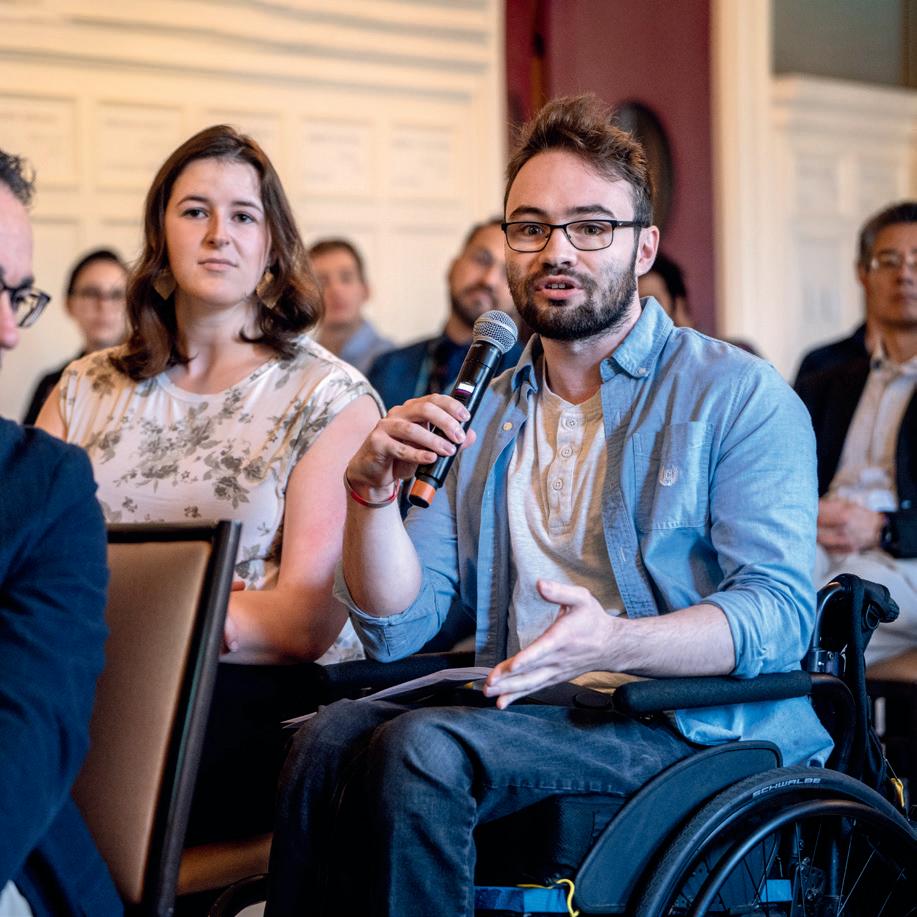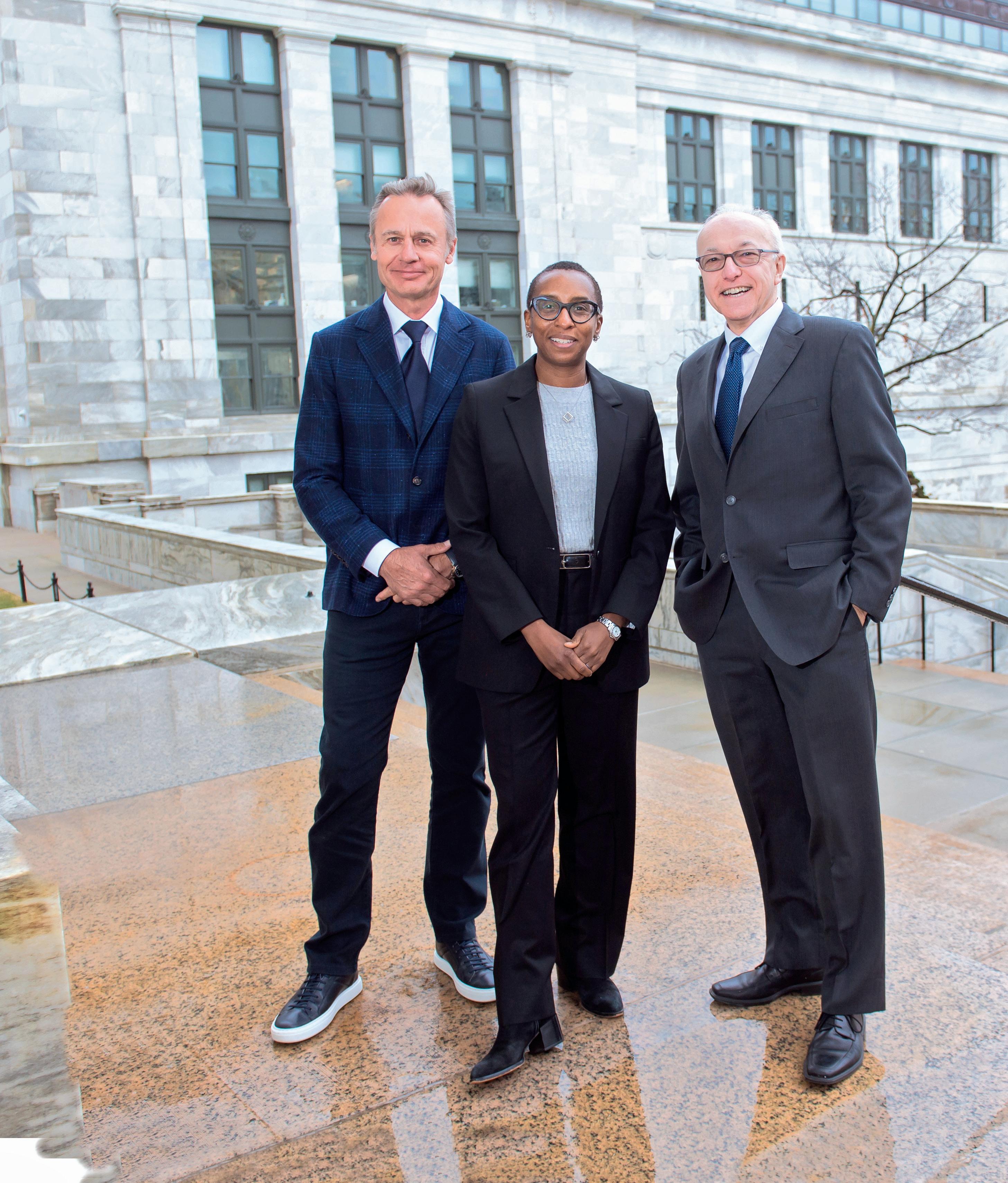








Swiss biotech executive, entrepreneur, and philanthropist Ernesto Bertarelli, MBA ’93, has pledged $75 million to advance basic scientific discovery, therapeutic science, and a culture of entrepreneurship at Harvard Medical School.

The gift sets in motion plans to transform the outdoor courtyard of Building C into an expansive, skylighted atrium that will serve as a convening
and collaboration space for occupants of the building as well as the broader HMS community.
In recognition of this generous commitment from the Bertarelli family, Building C will be named the Bertarelli Building.
In addition to housing the Department of Cell Biology and the Department of Biological Chemistry and Molecular Pharmacology—two of the 11 basic and social science departments that make up the Blavatnik Institute at HMS— the building serves as a hub for the School’s Therapeutics Initiative, which aims to advance therapeutics research, accelerate translation of discoveries into medicines, and educate and train the inventors of future medicines.
It is also home to the recently opened Blavatnik Harvard Life Lab Longwood, a centerpiece of the Therapeutics Initiative that provides collaborative workspaces for earlystage, high-potential biotech and life sciences startups founded by Harvard students, alumni, postdoctoral scholars, and faculty.
“Ernesto Bertarelli is an ardent supporter of both fundamental and translational research at Harvard Medical School,” says HMS Dean George Q. Daley, AB ’82, MD ’91, PhD. “He understands that in order to improve the health and well-being of patients, we must first support observations in the lab and then nurture and orient them toward interventions in the clinic. It is therefore fitting that the Bertarelli name will be inscribed in the marble of the building that personifies our commitment to both basic and therapeutic science.”
The planned atrium project, expected to be completed in 2025, includes enclosing the building’s existing outdoor courtyard, situated between the wet lab and dry lab arms of the Blavatnik Life Lab. The Building C facade was recently restored and will be preserved, and the new spaces housed within the atrium will be integrated into HMS’s historic campus fabric.
“The Therapeutics Initiative is working to address the impediments that can hinder an idea in the lab from progressing toward a medicine,” says Mark Namchuk, PhD, executive director of therapeutics translation and Professor of the Practice in the Department of Biological Chemistry and Molecular
“I am delighted to continue to support the HMS community in its important work by helping to modernize these landmark facilities to keep pace with therapeutics innovation.”
Ernesto Bertarelli
Both basic and translational science will be supported by new space in Bertarelli Building
Pharmacology at HMS. “A critical component to translating that science is building the infrastructure where both basic and translational science can be supported, and Ernesto Bertarelli is doing just that with his generous gift.”
Built in 1906, Building C is one of five marblefaced buildings—originally named A, B, C, D, and E—that form HMS’s iconic quadrangle. At that time, the combination of a new medical school and empty land in the Fenway drew hospitals to the neighborhood now known as the Longwood Medical Area (LMA).
Today, the LMA is a thriving and dynamic community of medical, academic, research, and cultural organizations—including several HMSaffiliated hospitals and research institutes—that combine to create a powerful economic engine for the city and the state.
“The combination of breakthrough science and empowering partnerships, like the one with Mr. Bertarelli, that animates the LMA is nothing short of inspiring,” says Claudine Gay, PhD ’97, who will become the 30th president of Harvard University on July 1. “You can feel the future of human health taking shape around you.”
Born in Rome, Bertarelli is a former biotechnology executive and an entrepreneur active in the fields of business, finance, sport, and philanthropy. He is currently chairman of the private investment firm B-FLEXION, formerly Waypoint Capital.
“Harvard Medical School is a world leader in health care innovation, translational research, and cutting-edge discovery, and it continues to have an immense impact on the health and well-being of humankind,” says Bertarelli, chair of the HMS Board of Fellows. “It has been my honor to have been a partner of the School for over two decades, and I am delighted to continue to support the HMS community in its important work by helping to modernize these landmark facilities to keep pace with therapeutics innovation.”
The Bertarelli family’s longstanding support of HMS, Harvard Business School, and the University includes the establishment of the Bertarelli Program in Translational Neuroscience and Neuroengineering in 2010 to bridge the gap between basic and translational neuroscience, culminating in a symposium held in October 2022
(see Page 15). The family has also established the endowed Bertarelli Professorship in Translational Medical Science, held by David Corey, PhD, and the current-use Bertarelli Rare Cancers Fund (BRCF), which, since it was created in 2019, has provided an exceptional opportunity to develop a prominent role for rare cancer research in the Harvard community. The BRCF effort was spearheaded by Dona Bertarelli, Ernesto’s sister.
“I am honored that the Bertarelli name will become a permanent and prominent part of the medical school’s quadrangle,” says outgoing Harvard University President Larry Bacow, JD ’76, MPP ’76, PhD ’78. “Ernesto is a great friend of Harvard and to me personally. His ambitious vision is exceeded only by his unwavering support. Harvard is all the better for both.”


Ernesto Bertarelli and his sister, Dona, are co-chairs of the Bertarelli Foundation, which tackles some of the biggest issues in the fields of marine conservation and life science research by developing partnerships with scientists, nongovernmental organizations, and governments around the world.Larry Bacow chats with Ernesto Bertarelli in the courtyard of Building C, which will be named the Bertarelli Building in recognition of Bertarelli’s $75 million gift to transform the courtyard into an expansive, skylighted atrium. At right, bottom left, and on cover, George Daley acts as a tour guide for Bertarelli and Claudine Gay as they explore Building C. It’s an exciting time for HMS, says the School’s chief campus planner. page 27
Grace Hsu, DMD ’20, MD ’23 (pictured), says her time at HMS taught her the importance of patience and empathy when treating patients, and she is grateful for the life lessons those patients taught her. She’s also grateful for the financial support that made her HMS journey possible.

“It was an enriching, thought-provoking, and inspiring time at Harvard Medical School, and it was made possible by the generosity of donors,” says Hsu.
One of Hsu’s benefactors was N. Scott Adzick, AB ’75, MD ’79, who recently made another $250,000 gift to the endowed N. Scott Adzick, MD Scholarship Fund, which he and his wife, Sandy, established with a $250,000 gift in 2019 to support HMS students interested in surgery.
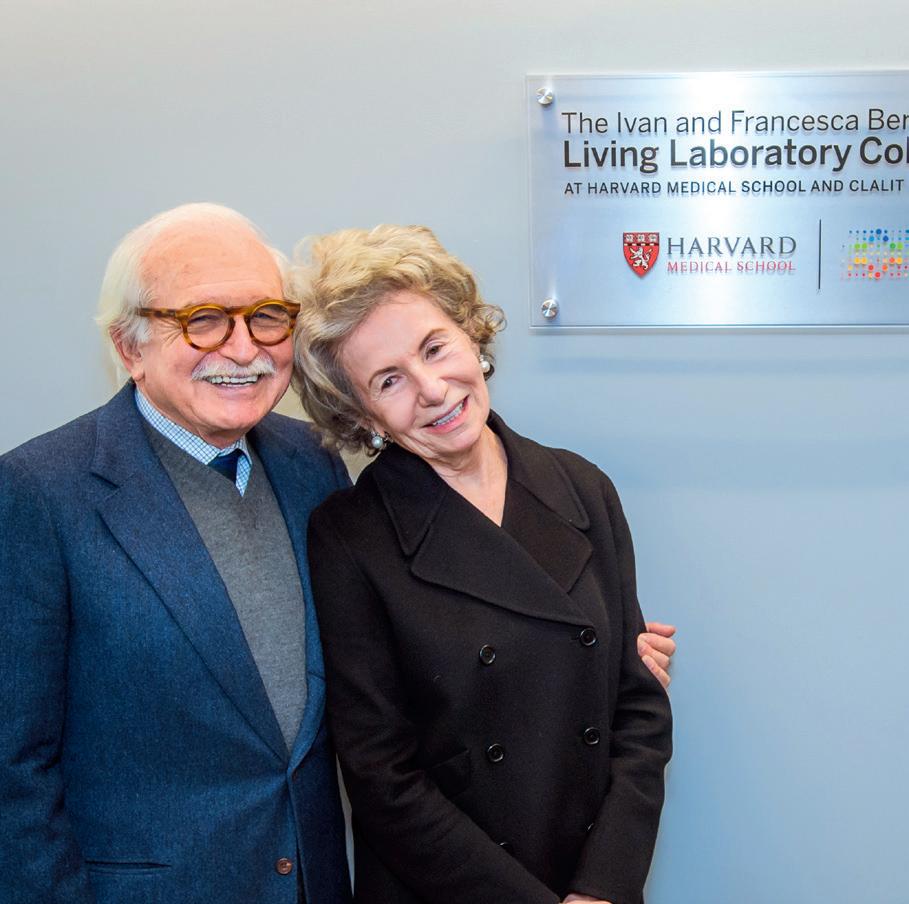
For Hsu, who is the daughter of immigrant parents, becoming a surgeon has been a lifelong goal. She hopes to complete her residency and pursue a career in surgery.
“Harvard Medical School is such a wonderful institution. It provided me both the foundational knowledge and clinical skills to help me reach this goal,” Hsu says.
A celebration held Dec. 6 at Harvard Medical School recognized the generosity of the Berkowitz family, whose philanthropic gift established a joint precision medicine effort between HMS and Israel’s Clalit Research Institute. A subsequent celebration attended by Israeli President Isaac Herzog (top) was hosted by Clalit on Jan. 15 in Jerusalem to mark the launch of this effort.

The Ivan and Francesca Berkowitz Family Living Laboratory Collaboration enables researchers and clinicians to determine the efficacy of disease treatments for people across demographics and to identify biomarkers that can show an individual’s risk for relapse. The program has two arms working together to conduct joint research: The Ivan and Francesca Berkowitz Family Living Laboratory at HMS and The Ivan and Francesca Berkowitz Family Precision Medicine Clinic at Clalit. The Clalit arm also features a clinical component that provides diagnosis and care for patients with rare, undiagnosed, and hard-to-treat conditions.
In addition, the collaboration focuses on education, teaching the next generation of biomedical informaticians and computational biologists how to generate insights from data and translate them into frontline clinical interventions.
All of this work is being led jointly by Isaac Kohane, MD, PhD, the Marion V. Nelson Professor and chair of the Department of Biomedical Informatics in the Blavatnik Institute at HMS, and Ran Balicer, MD, PhD, MPH, founding director of the Clalit Research Institute and chief innovation officer of Clalit Health Services (CHS), Israel’s largest health insurance and medical provider.
During the Dec. 6 celebration, Kohane said he was inspired by CHS’ willingness to use its data to improve patient care. He expressed his sincere thanks to Francesca and Ivan Berkowitz (right) and said he expects the collaboration “to achieve a lot of wonderful things … for the U.S., for Israel, and for humanity.”
Adzick, surgeon-in-chief at Children’s Hospital of Philadelphia since 1995, and his wife established their fund as a way of honoring the memories of Adzick’s Harvard mentors, Francis D. Moore, AB ’35, MD ’39; W. Hardy Hendren III, MD ’52; W. Gerald Austen, MD ’55; and Judah Folkman, MD ’57. Adzick also cites immense gratitude for the scholarship he received while at HMS and wants succeeding generations of students to have the same opportunities.
“If I can impact one, two, three or more HMS students to foster and support their interest in surgery, that’s a wonderful thing,” Adzick says.
“It was an enriching, thought-provoking, and inspiring time at Harvard Medical School, and it was made possible by the generosity of donors.”
Grace Hsu
Robert Kleiger, MD ’60, championed women in medicine more than 40 years ago—long before it was common or even popular to do so.
When his two nieces attended his memorial in St. Louis in early 2022, they connected with female doctors who spoke with respect for Kleiger and his financial and professional assistance that gave their careers a trajectory they could not have imagined.
“He was probably one of the first male doctors who was into really supporting women and getting behind their research, funding them, and helping them,” says Susan Kushner, who is the daughter of Kleiger’s late sister. Kleiger, who never married, died Jan. 21, 2022, at age 87 of prostate cancer— one of the diseases for which he had provided generous research funding to one of his former students, who is still hoping to find a cure.
Kleiger, a professor of medicine at Washington University in St. Louis, was a cardiologist widely known for his deep expertise in electrocardiography, the measurement and analysis of the heart’s electrical activity. A textbook he co-wrote on the subject, “Clinical Scalar Electrocardiography,” was first published in 1972 and is still in use today.

“He taught everything about the electrocardiogram … and his former students would be intimidated in his classes,” Kushner notes. “When Dr. Kleiger asked you a question, then that question led to another question and another question.”
His curiosity not only about medicine but about everyone and everything informed his life, so he was only too happy to make an unrestricted bequest of nearly $4.2 million to Harvard Medical School, giving HMS Dean George Q. Daley, AB ’82, MD ’91, PhD, the flexibility to direct resources wherever they are needed most.
When he wasn’t teaching or writing and revising textbooks, Kleiger was an enthusiastic ornithologist in search of the perfect bird photograph.
“I have gorgeous photographs he took of birds and flowers,” says his niece Nancy Wasserman. “He traveled the world photographing the species from Antarctica to China and Africa. I think he was curious and bright and read so much and really dove into any subject that he was into.”
Originally from Brooklyn, New York, Kleiger earned his bachelor’s degree from Yale University in 1956. He completed an internship at the Peter Bent Brigham Hospital (now Brigham and Women’s) in Boston in 1961. He continued his training with a residency in internal medicine at Barnes Hospital (now BarnesJewish) in St. Louis in 1963. He then completed two fellowships in cardiology—at the Harvard School of Public Health (now the Harvard T.H. Chan School of Public Health) in 1965 and Stanford University School of Medicine in 1969. A loyal giver to HMS for more than 40 years, he also served on his 60th Reunion committee.
When his nieces became closer to their uncle following the death of their parents seven years ago, they learned more about his standing as a patron in the St. Louis artistic community and his passion for birds and photography.
That passion extended to the cardiology care their father received toward the end of his life from Kleiger. “He always went the extra mile,” Kushner says, “Certainly when it came to anything medical.”
Kleiger’s first published study came a year after he graduated from HMS, in a 1961 issue of the Journal of the American Medical Association. It described the initial use of an electric countershock to treat ventricular tachycardia, a life-threatening arrhythmia.
“He was probably one of the first male doctors who was into really supporting women and getting behind their research, funding them, and helping them.”
Susan KushnerRobert Kleiger was widely known for his deep expertise in electrocardiography, the measurement and analysis of electrical activity in the heart.
There is one book that Alec Friswold, an MD/MBA candidate at Harvard Medical School, is particularly pleased to display on his shelf. The book’s author, an academic, received medical care from Friswold while hospitalized with heart problems, and he gifted the book to Friswold at the end of his hospital stay. A thoughtful note inside the book describes how Friswold’s care helped the author recover.
“It’s a proud reminder of the impact I can have through medicine,” says Friswold.
In hopes of enabling more students to make such an impact, Laurence “Larry” Paul, AB ’86, MD ’90, and his wife, Kathleen, established an endowed scholarship fund at HMS a decade ago. One of the fund’s current recipients is Friswold, who chose to become a doctor because several of his family members benefited from fantastic medical care while he was growing up, and he wanted to repay the favor to his own patients someday.
“It’s wonderfully rewarding to provide opportunities to students who are passionate about making a demonstrable impact,” says Larry Paul, vice chair of the HMS Board of Fellows and co-chair of the

HMS Advisory Council on Education. “Helping HMS to be in a position to attract these remarkable students, who can then contribute to the community and experience all the School has to offer without having to worry about paying back student loans, is essential to creating the learning environment that makes HMS so special.”
The Pauls recently made a significant gift to their HMS scholarship fund, while also creating a new endowed scholarship fund at Harvard’s Faculty of Arts and Sciences that will support students at Harvard College, with a preference for those interested in medicine or the life sciences.
Larry Paul“While there are lots of great causes and organizations to support, we have been struck by the magnitude of the impact that attending Harvard has on these amazing individuals, who then are able to pursue discoveries and innovate in game-changing ways,” says Paul. “It’s a privilege to be part of a solution that helps HMS to appeal to these future leaders. Kathleen and I feel quite strongly that scholarship support is hugely impactful not only for the recipients of our gift but also for all the people whose lives will be positively impacted by these students as they continue on their professional journeys.”
Both HMS and Harvard College rely on contributions from alumni and other donors to maintain their needbased financial aid programs, which ensure that a candidate’s admission will not be hindered by a lack of financial resources or a need for financial aid.
“Like both Larry and Kathleen, I’m committed to ensuring that scholarships are available to all deserving students entering the field of medicine, without regard for their ability to pay for medical school,” says HMS Dean George Q. Daley, AB ’82, MD ’91, PhD. “This is a spectacular boost to our financial aid program and our outstanding students, both at HMS and the College.”
At HMS, nearly 75% percent of students receive financial aid, while at Harvard College, 55% of students rely on it.
Claudine Gay, PhD ’97, Edgerley Family Dean of FAS and the president-elect of Harvard University— she’ll assume her new role July 1—says she’s thankful for the Pauls’ “tremendous” commitment to Harvard. “This gift will allow our diverse and talented students to take advantage of opportunities and realize their full potential,” she says.
“It’s wonderfully rewarding to provide opportunities to students who are passionate about making a demonstrable impact.”
HMS students’ average graduating debt in 2022 was $108,382, compared to the national average of $179,679 at public medical schools, and $187,229 at private medical schools.Alec Friswold, a beneficiary of the Kathleen M. and Laurence E. Paul, MD ’90 Scholarship Fund, says the people of HMS—his classmates, mentors, and advisers—have played the most important role in his development as a physician.
01
Residents, fellows, and program directors at all HMS-affiliated hospitals were honored and welcomed at a reception hosted by HMS Dean George Q. Daley, AB ’82, MD ’91, PhD, and HMS Dean for Medical Education Edward
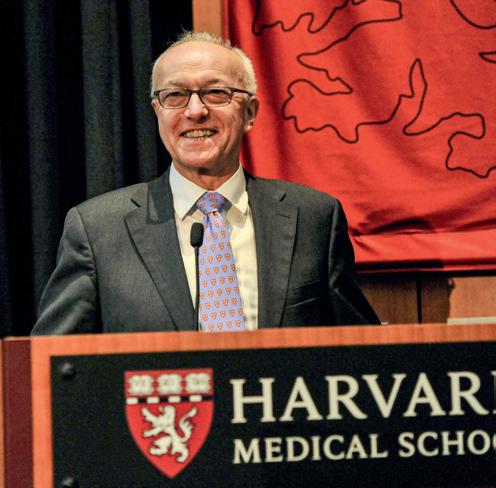
M. Hundert, MD ’84, Sept. 28 in the Tosteson Medical Education Center atrium.

02
The Massachusetts Consortium on Pathogen Readiness (MassCPR) hosted a hybrid symposium Oct. 24 to share the lessons it has learned from the evolving COVID-19 pandemic and to chart a path forward for dealing with coronavirus variants and other emerging pathogens. Two of the event’s featured speakers were Dan Barouch, AB ’93, MD ’99, the William Bosworth Castle Professor of Medicine at HMS and Beth Israel Deaconess Medical Center and a leader of MassCPR’s Vaccines Working Group, and Galit Alter, PhD, an HMS professor of medicine at Massachusetts General Hospital and a leader of MassCPR’s Pathogenesis Working Group.
03
Rueben C. Warren, DDS, MPH ’73, DPH ’75, MDiv (left), director of the National Center for Bioethics in Research and Health Care and a professor of bioethics at Tuskegee University in Tuskegee, Alabama, delivered the 100th annual George W. Gay Lecture in Medical Ethics on Nov. 8 in Boston. At right is Robert D. Truog, MD, MA, director of the HMS Center for Bioethics and the Frances Glessner Lee Professor of Medical Ethics, Anaesthesia, and Pediatrics at Boston Children’s Hospital.
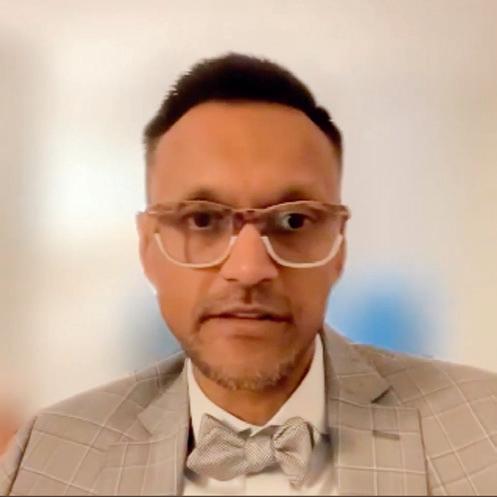
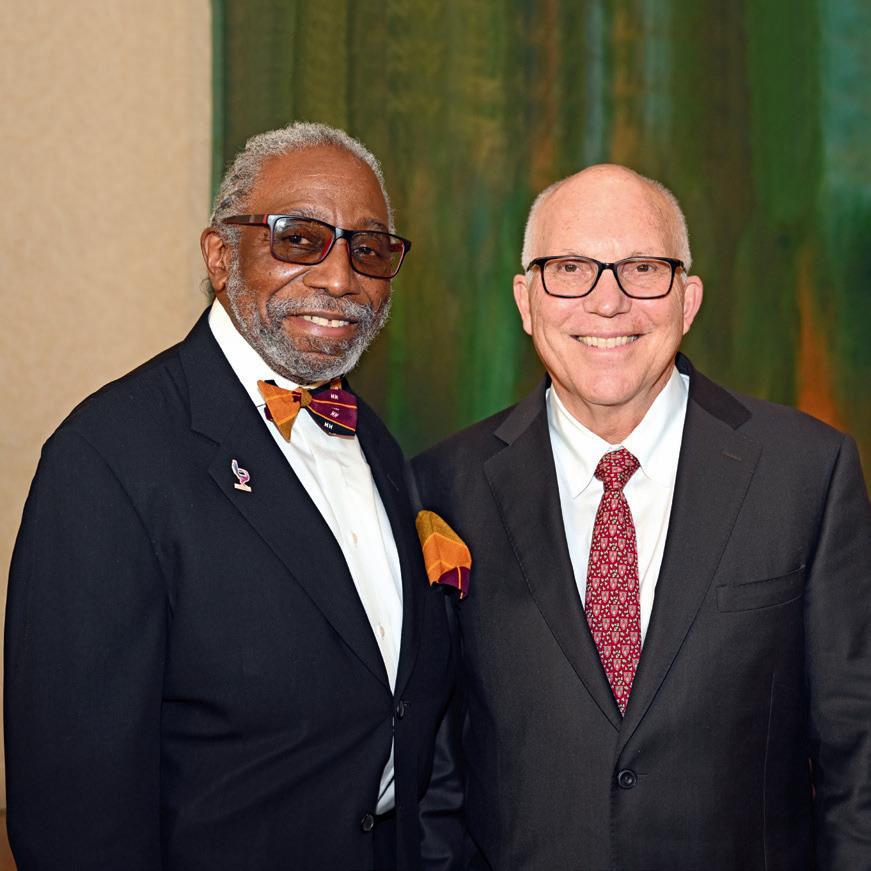

04
On Sept. 28, HMS Dean George Q Daley, AB ’82, MD ’91, PhD, delivered his first in-person State of the School address since the COVID-19 pandemic began. Following Daley’s speech, HMS hosted a celebration on the Quad to recognize the achievements of all members of the School’s community and to thank everyone for all they’ve done over the past few years. The event featured music, lawn games, photo and video booths, and a variety of food and beverages.
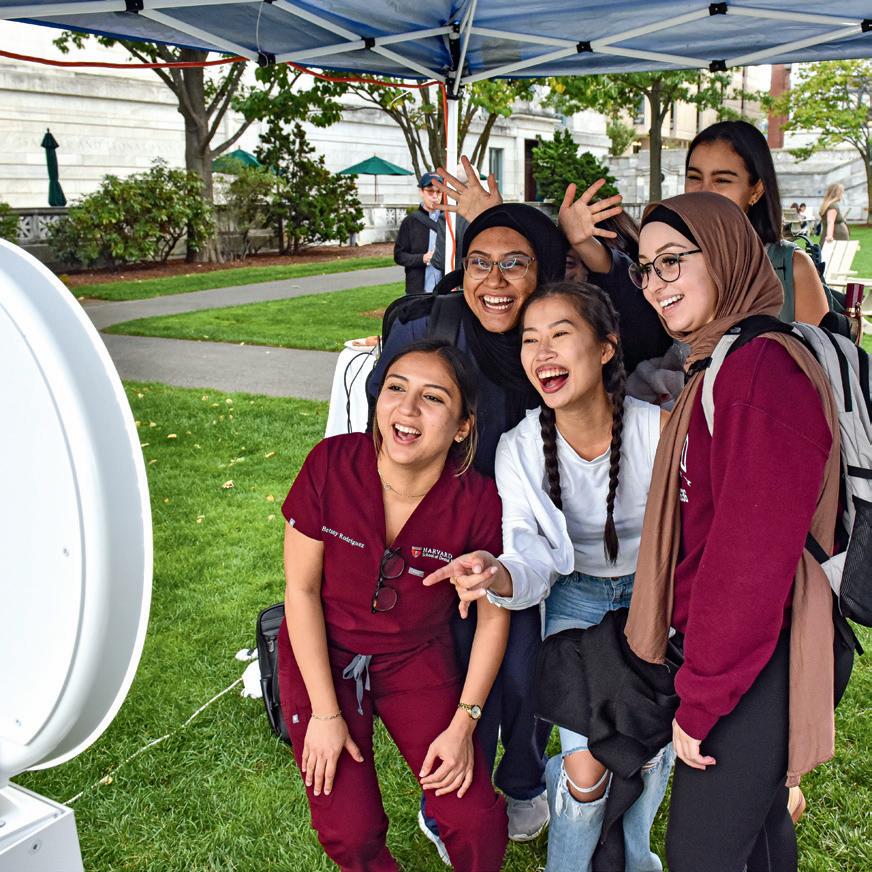
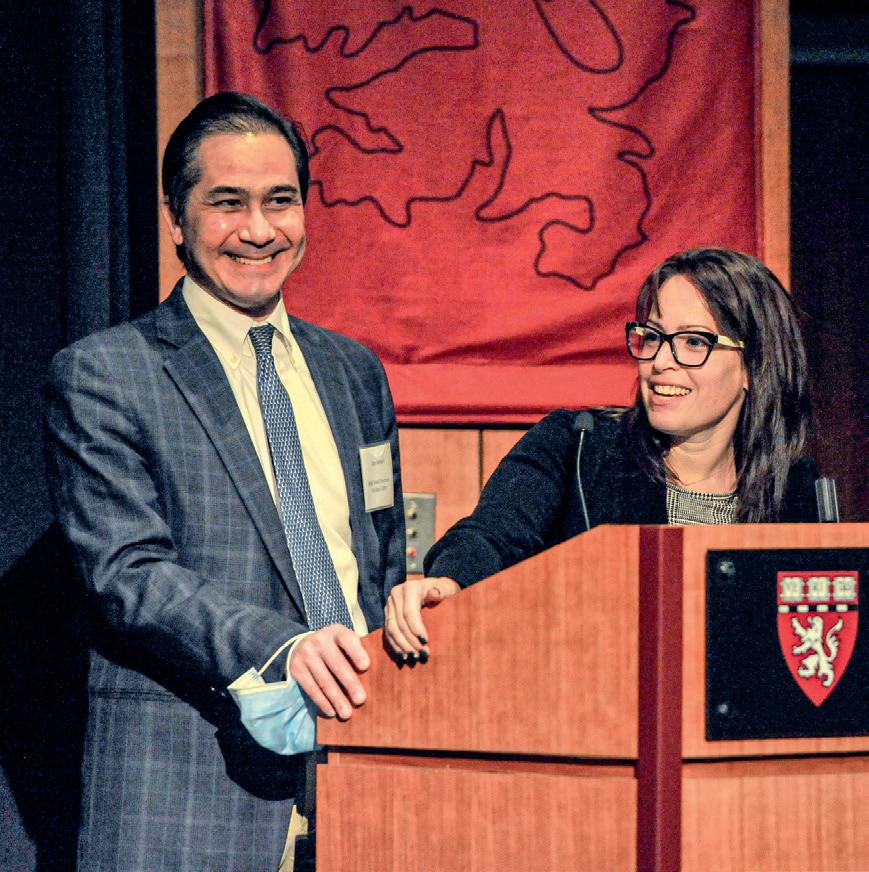
05
The inaugural Kantoff-Sang Dean’s Lecture was held virtually Dec. 5 and featured Sham Kakade, PhD, a Gordon McKay Professor of Computer Science and Statistics and co-director of the Kempner Institute for the Study of Natural and Artificial Intelligence at Harvard University. The endowed lectureship was established by Mark S. Hughes, AB ’82, MD ’86, and Delia N. Sang, AB ’71, MD, in honor of Philip Kantoff, MD, and in memory of Delia’s father, Heng-Kang Sang, AM ’46, PhD ’47, who was a patient of Kantoff’s.
06
At HMS’s Alumni Leadership Appreciation Event on Feb. 9, Gail Gazelle, MD, an experienced physician, speaker, author, and coach, as well as a part-time assistant professor of medicine at HMS, shared practical tips for living a healthy, happy life of meaning and purpose while reducing burnout. This annual event is for volunteers, Dean’s Council members, and for Federman Loyalty Circle members who have made consecutive annual gifts for the past 20 years or more.
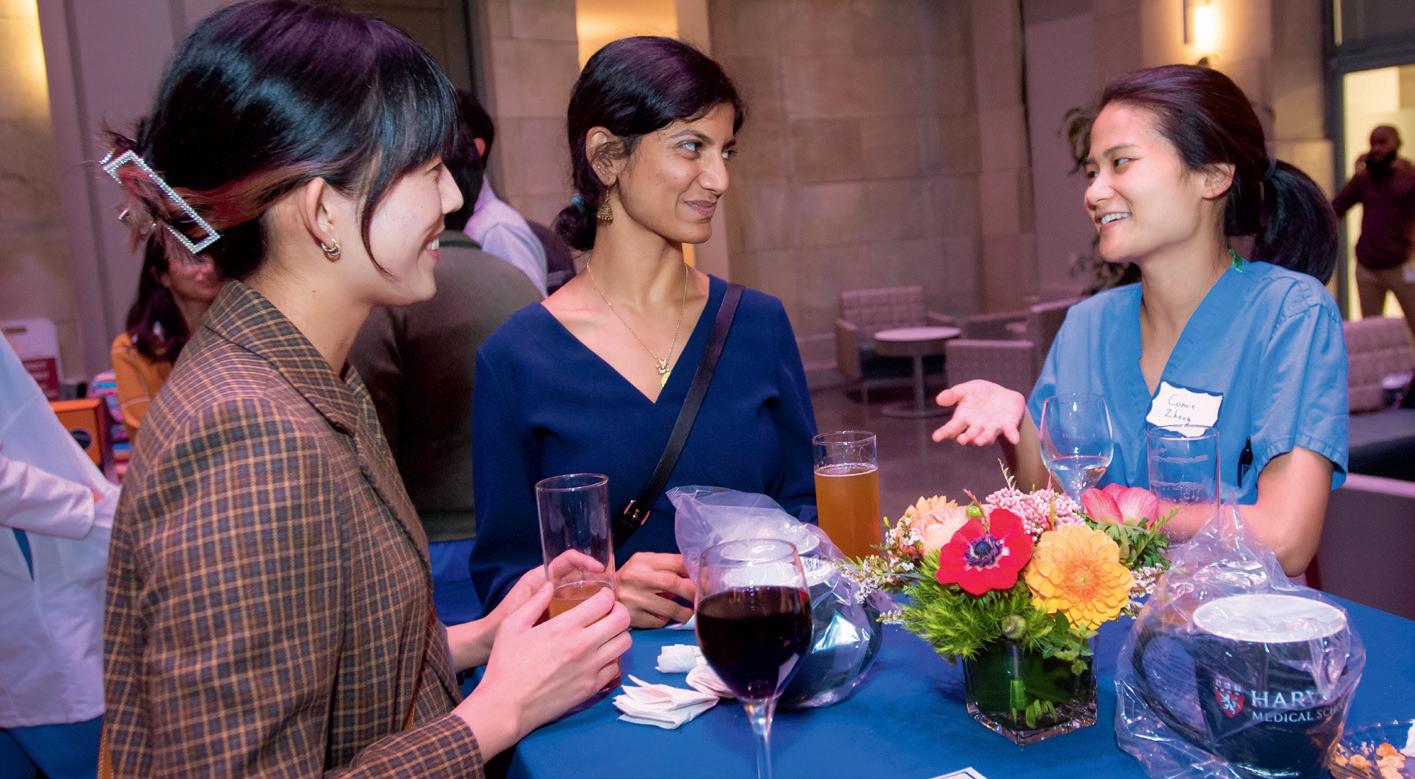
07 HMS Dean for Medical Education Edward M. Hundert, MD ’84 (left), presents Randall W. King, MD ’97, PhD, the Harry C. McKenzie Professor of Cell Biology in the Blavatnik Institute at HMS, with the Fariborz Maseeh Award for Innovative Medical Education on Oct. 24, as part of the Daniel D. Federman Teaching Awards ceremony at HMS. King serves as the director of the first-year Foundations course in the Pathways curriculum and is co-director of the advanced integrated science course in cancer biology.
08
Emery Brown, AB ’78, AM ’84, MD ’87, PhD ’88, delivered the keynote address, “Rethinking General Anesthesia,” at the 24th annual Edward R. & Anne G. Lefler Symposium, held Sept. 20 in the Armenise Amphitheater at HMS. In 1995, the Leflers’ estate provided the HMS Department of Neurobiology with $7.3 million to establish the Edward R. and Anne G. Lefler Center for the Study of Neurodegenerative Disorders, which supports the annual symposium. Brown is the Warren M. Zapol Professor of Anaesthesia at Massachusetts General Hospital and HMS, as well as the Edward Hood Taplin Professor of Medical Engineering and Computational Neuroscience at the Massachusetts Institute of Technology.
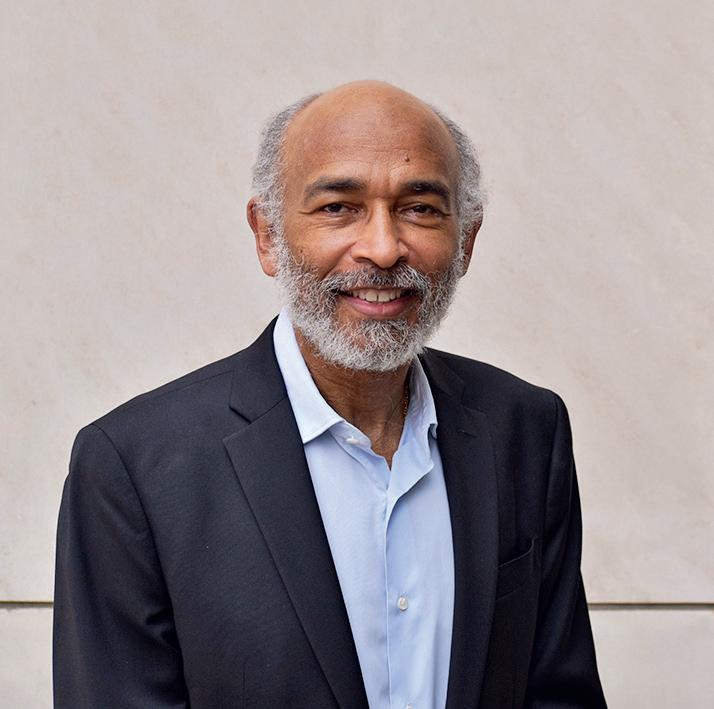
To say the death of Paul Farmer, MD ’88, PhD ’90, left a vacancy in global health activism is like saying the asteroid that wiped out dinosaurs left a dent in the ground. There’s no adequate way to measure Farmer’s immense impact on the world. Millions of people benefited from his efforts to fight injustice by providing care for the world’s poorest populations. And while nobody can fill the void created by his passing, the people who knew and loved Farmer say it would be an injustice not to try.
“We must not be so daunted by our loss that we fail to carry on Paul’s vision,” says a loyal supporter of Farmer’s. “His relentless work in the service of others must now continue through the inspired many that he left behind—the students he taught, the fellows he trained, and the faculty he mentored and led.”
The supporter, who chooses to remain anonymous, recently made a $10 million gift to Harvard Medical
School in Farmer’s honor, establishing the Paul Farmer Professorship and Chair of Global Health and Social Medicine, as well as a discretionary fund for future incumbents to use.
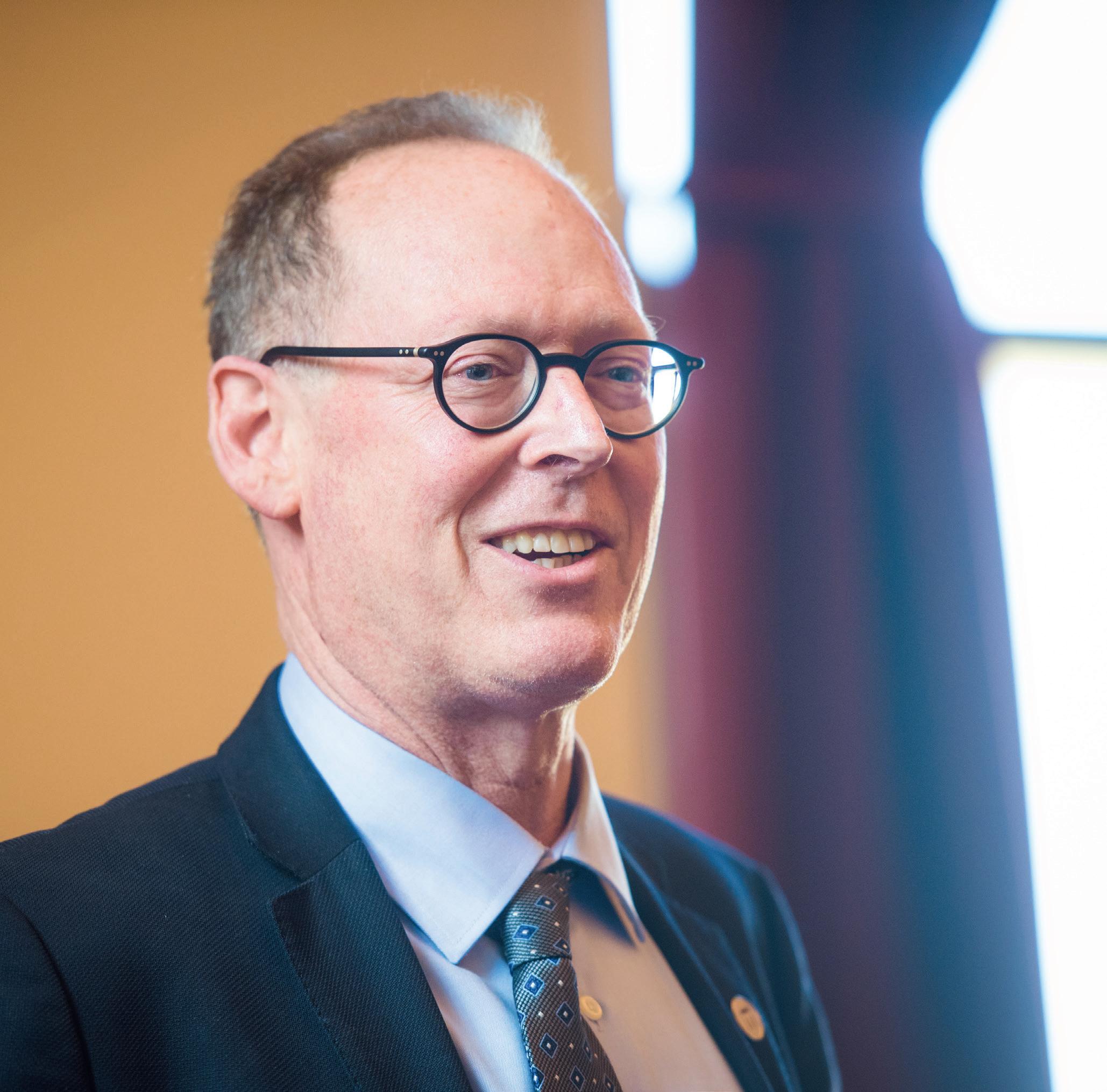 Allan Brandt
Allan Brandt
At the time of his death in early 2022, Farmer was the Kolokotrones University Professor and chair of the Department of Global Health and Social Medicine (DGHSM) in the Blavatnik Institute at HMS. He was also chief strategist of the international health care organization Partners In Health (PIH), which he co-founded, and chief of the Division of Global Health Equity at Brigham and Women’s Hospital (BWH).
“This remarkable gift assures that the leader of our department will always be connected to Paul Farmer’s brilliance, commitment, and legacy,” says Allan Brandt, PhD, interim head of the DGHSM. “In addition, the endowment will provide funds for the chair to embark on innovative programs in research and education to support our goal of global health equity.”
Farmer embraced and championed HMS’s earnest commitment to health equity. He leveraged the School’s singular platform to attract the world’s most committed scholars and practitioners, establish the academic foundations of global health delivery, and fortify the School’s essential role in the partnership model he built.
“This remarkable gift assures that the leader of our department will always be connected to Paul Farmer’s brilliance, commitment, and legacy.”
$10 million gift creates Paul Farmer Professorship and Chair at HMS to honor beloved physician, scholar, anthropologist, teacher, and friend
The DGHSM is a critical, enduring pillar of Farmer’s work. As department chair, he strengthened the Global Health Delivery Project, enabling vibrant collaboration among the department, Harvard Business School, PIH, and the Division of Global Health Equity at BWH, as well as with global ministries of health and other nonprofit partners. By linking research and teaching with caring for patients and communities, Farmer helped those engaged in clinical care, basic science, and public health to more carefully attend to social context— to look at what occurs outside the laboratory or hospital and to look back in time at the history of the conditions that shape inequities.
“Paul was the exemplar of a compassionate physician,” says the anonymous donor. “He was determined to provide expert care to the most disenfranchised and vulnerable people so they could not only survive, but thrive.”
Fittingly, the DGHSM consists of faculty and students who share Farmer’s dedication to patients and communities in some of the poorest regions of the world. For example, through the Master of Medical Sciences in Global Health Delivery program, the department is educating leaders in global health delivery and bolstering the pipeline of well-equipped global health practitioners around the world for future generations. DGHSM faculty have had remarkable success at improving the well-being of people living in some of the most challenging conditions imaginable—and they continue to advance novel research and train future generations of physicians, scientists, and leaders, with the ultimate goal of propelling social medicine that is research-based, expansive, and inclusive.
“Paul’s brilliant work created well-established models for institutions to follow toward securing global health, and we must ensure the forward momentum of those models” says the anonymous donor.
Brandt, who is also the Amalie Moses Kass Professor of the History of Medicine at HMS and
Nearly 100 Harvard Medical School community members—including students, alumni, and donors— had the chance to connect, share a meal, and hear the powerful stories of past and current financial aid recipients at the Spotlight on Medical Education event Oct. 18.
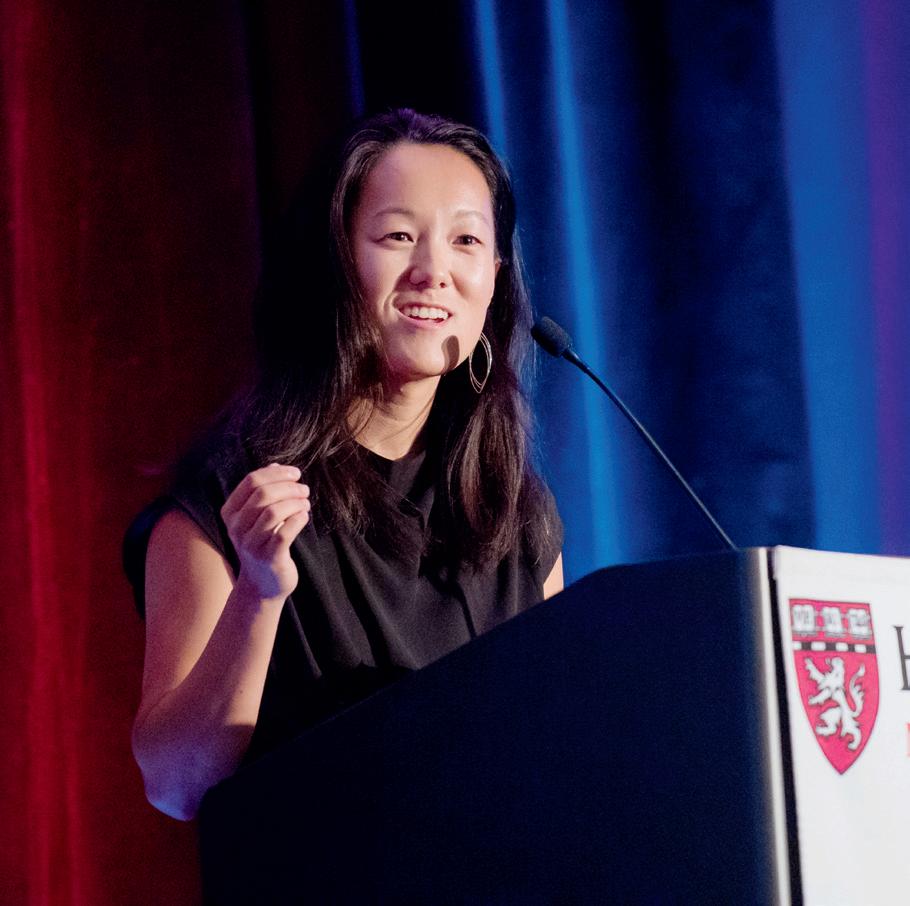
The evening opened with remarks from Edward M. Hundert, MD ’84, HMS dean for medical education. “Students are the heart of Harvard Medical School,” said Hundert, “and every contribution to the medical education mission makes a difference.”
Nearly 75% of HMS students receive financial aid, and one in five come from a family whose annual income is $50,000 or less. Thanks largely to donors—many of them HMS alumni and past financial aid recipients—HMS has one of the country’s most generous MD financial
aid programs. With philanthropic support, the School is able to consistently maintain an average graduating debt that is more than 40% lower than the national average.
Liz Roux, AB ’19, HMS MD Class of 2025 (pictured), spoke at the event about the tragic personal losses she endured during her remarkable journey to HMS. She was abandoned as a newborn; adopted by a single woman whom she came to love deeply, only to be orphaned again as a teenager when her adoptive mother died from cancer; then taken in by another loving family that would lose their son to a rare pediatric cancer.
Roux said these losses cemented her resolve to become a doctor. “Medicine is, above all else, an endeavor in compassion,” she said. “I hoped that my experience could produce a better experience for someone else.”
• The Paul Farmer Professorship and Chair of Global Health and Social Medicine will be bestowed upon the chair of the Department of Global Health and Social Medicine (DGHSM) at Harvard Medical School and forever link Paul Farmer’s name to the department he led for 13 years.
• The Paul Farmer Professor and Chair will enhance the DGHSM’s commitment to building academic excellence and innovative pedagogy by developing a spectrum of world-class teaching programs in global health and social medicine.
• The Paul Farmer Professor and Chair will set the goals and priorities of the DGHSM and expand the frontiers of interdisciplinary scholarship in global health, drawing upon Harvard’s social science and humanities departments and bridging the social sciences relevant to medicine with clinical and evolving delivery science.
• The Paul Farmer Professorship and Chair of Global Health and Social Medicine Discretionary Fund will be used by the Chair to support the most promising and pressing research, implement and evaluate new models of care delivery, nurture the development of and provide mentorship to medical students and junior faculty who are the future leaders of global health, and launch critical new initiatives in times of crisis.
a professor of the history of science in the Harvard Faculty of Arts and Sciences, says the DGHSM is eager to continue and expand Farmer’s vision of linking research, teaching, and service. This would not be possible, he says, without funding that enables the department to respond to crises when they arise while continuing to produce outcomes
that protect human health. “Thus, we are deeply grateful for this generous and thoughtful gift, which will honor Paul’s vision and memory in perpetuity.”
Born in 1916, Simpson Smedley Burke Jr., MD ’41, was raised to excel in his studies. After earning valedictorian honors at his high school in Modesto, California, and graduating summa cum laude from the University of California, he attended Harvard Medical School, where he would graduate with two specialties, anesthesiology and critical care medicine.
Burke then served as a captain in the U.S. Army and embarked on a distinguished medical career, which included working in a portable surgical hospital in the Philippines during World War II, earning him a Bronze Star for heroic service. After the military, he spent many years as an anesthesiologist and professor.
In 1971, Burke married Margaret (Fliger) Burke, who, in addition to her nursing degree, held degrees in physiology and adult education, as well as a PhD in educational leadership. Simpson Burke had met his match. “They were just a fantastic intellectual couple, and they cared deeply about others,” says Margaret Burke’s oldest brother, Daniel Fliger. When Simpson Burke was in his mid-80s, he and Margaret (pictured together above) included HMS in their will. They made a bequest intention to provide financial aid to MD students, which qualified them for membership in the Ezekiel Hersey Council (EHC), the School’s legacy giving society. EHC Chair Jordan J. Cohen, MD ’60, is immensely grateful that so many alumni and friends recognize the importance of supporting students in this way. “We know that the high cost of attending medical school deters many highly qualified and gifted students from even considering a career in medicine,” Cohen says.
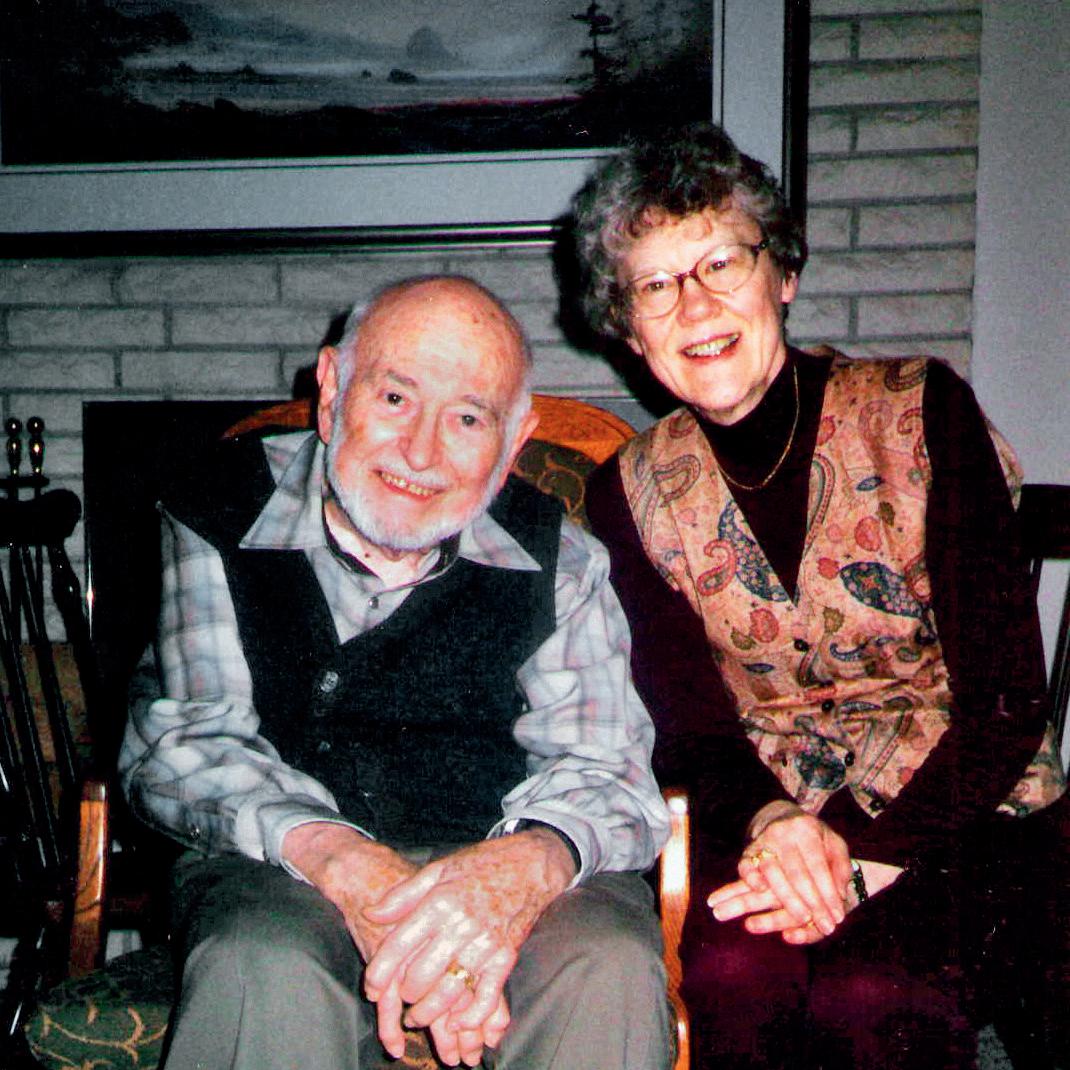
“One of the greatest contributors to advancing human happiness is biomedical research. Thus, when we were looking for ways to make a difference, and given that Harvard Medical School is far and away the world’s preeminent leader in this area, we could think of no better action than to support biomedical research at HMS. We are thrilled to be able to provide this support through a bequest gift that will establish an endowed professorship. In addition, as we
realized the School certainly knows best where innovations are most likely to occur, we decided to let HMS select both the researcher and the area of study to receive the gift.”
The Ezekiel Hersey Council recognizes those who have created a life income gift, named HMS as a beneficiary of a retirement account or existing donor-advised fund, or included HMS in their will or trust. Learn more at hms.harvard.edu/EHC
“We also know that accumulated debt unduly influences many students’ choice of specialty.”
Simpson Burke, a proud alumnus, often attended events on the Quad with Margaret. He died in 2006, but Margaret went to a few EHC events on her own, honored to be a part of the HMS community. Sadly, Margaret Burke died in 2018. Recently, her estate distributed more than $683,000 to the School.
In his 60th Reunion Report, when asked what advice he would give to students, Simpson Burke said, “Live the role of service!” Through their bequest gift, the Burkes are enabling students to do just that.
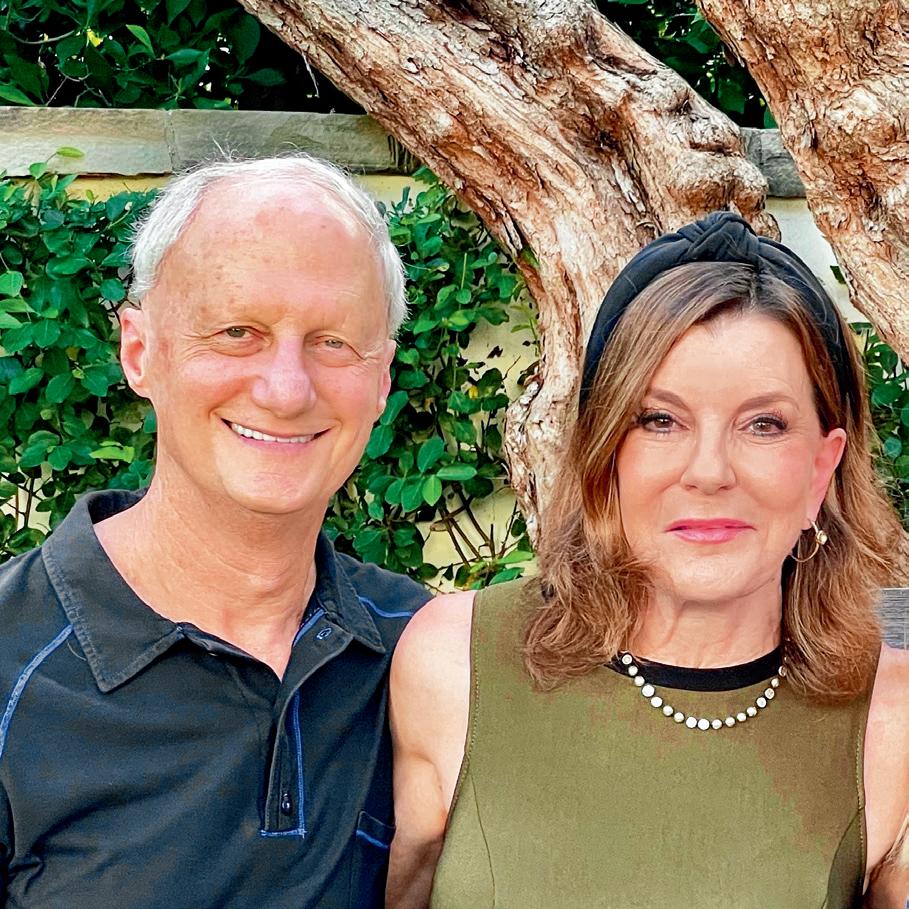
Bequest gifts of any size have a lasting and powerful impact on the School. These gifts have combined to provide more than $52 million in the past decade to alleviate suffering and improve health and well-being for all.
Hazem Ben-Gacem, AB ’92, will always have a soft spot in his heart for Tunisia, his homeland. For more than 20 years, he has made significant gifts to Harvard University aimed at supporting Tunisians.
“It’s a small country that lacks natural resources, and its primary assets are its 4,000-year-old civilization and the competence of its people,” says Ben-Gacem, describing Africa’s northernmost country. “I hope that my gifts will help future generations of Tunisians take the country to the next level of development and progress.”
Ben-Gacem’s support of Harvard has been farreaching, extending across various schools and focus areas, including his funding of the 2016 opening of the Tunisia Office of the Center for Middle Eastern Studies at Harvard University. In 2021, he turned his attention to Harvard Medical School, giving $1 million to fund an initiative that enabled access to HMX online courses for select groups of students at Tunisia’s four medical schools.
Hazem Ben-Gacem“I thought this was a brilliant initiative to support Tunisian medical students, particularly during the COVID period, when travel was restricted,” says Ben-Gacem, co-chief executive officer of Investcorp, a global provider and manager of alternative investment products. Encouraged by the initiative’s success, he recently decided to establish the Hazem Ben-Gacem Tunisia Medical Fellowship Fund at HMS with a $5 million gift. Each year for the next 10 years, this fund will enable two Tunisians—accepted through HMS’s admissions process—to undertake postgraduate master’s degree programs at HMS with tuition support and funding to cover their living expenses in Boston for the duration of the programs.
“We hope these graduates will return to Tunisia and serve as mentors and colleagues, thereby having a significant multiplier effect of the gift from Hazem,” says David Roberts, MD ’95, dean for external education at HMS and the Steven P. Simcox, Patrick A. Clifford, and James H. Higby Associate Professor of Medicine at Beth Israel Deaconess Medical Center. “Our master’s programs have had great impact on learners from around the world, in terms of their own careers,
their academic research work, their work within their institutions, and their work with patients.”
This ability to make an impact drives Ben-Gacem’s philanthropic investment in HMS, giving him hope that Tunisia will someday boast top-notch health care and medical research sectors with an outstanding pedigree of Tunisian medical practitioners.
“HMS has been a beacon of medical education globally since its formation over 240 years ago,” he says, “and it’s an absolute honor to have the School play a role in the development of the health care sector in Tunisia.”

“It’s an absolute honor to have (HMS) play a role in the development of the health care sector in Tunisia.”
HMS offers nine master’s degree programs to address the needs of clinicians, clinician-scientists, and administrators. These degrees combine innovative forms of pedagogy from leading Harvard faculty with an individual mentor experience in a Harvard-affiliated laboratory or with a practical application at HMS-affiliated hospitals.
In late 2019, a coronavirus emerged in Wuhan, China, that caused a respiratory illness the world would come to know as COVID-19. The new virus, SARS-CoV-2, caught our health care defense systems off guard and triggered a pandemic that, according to official World Health Organization data, has killed nearly 7 million people, though the true death toll may be three times that.
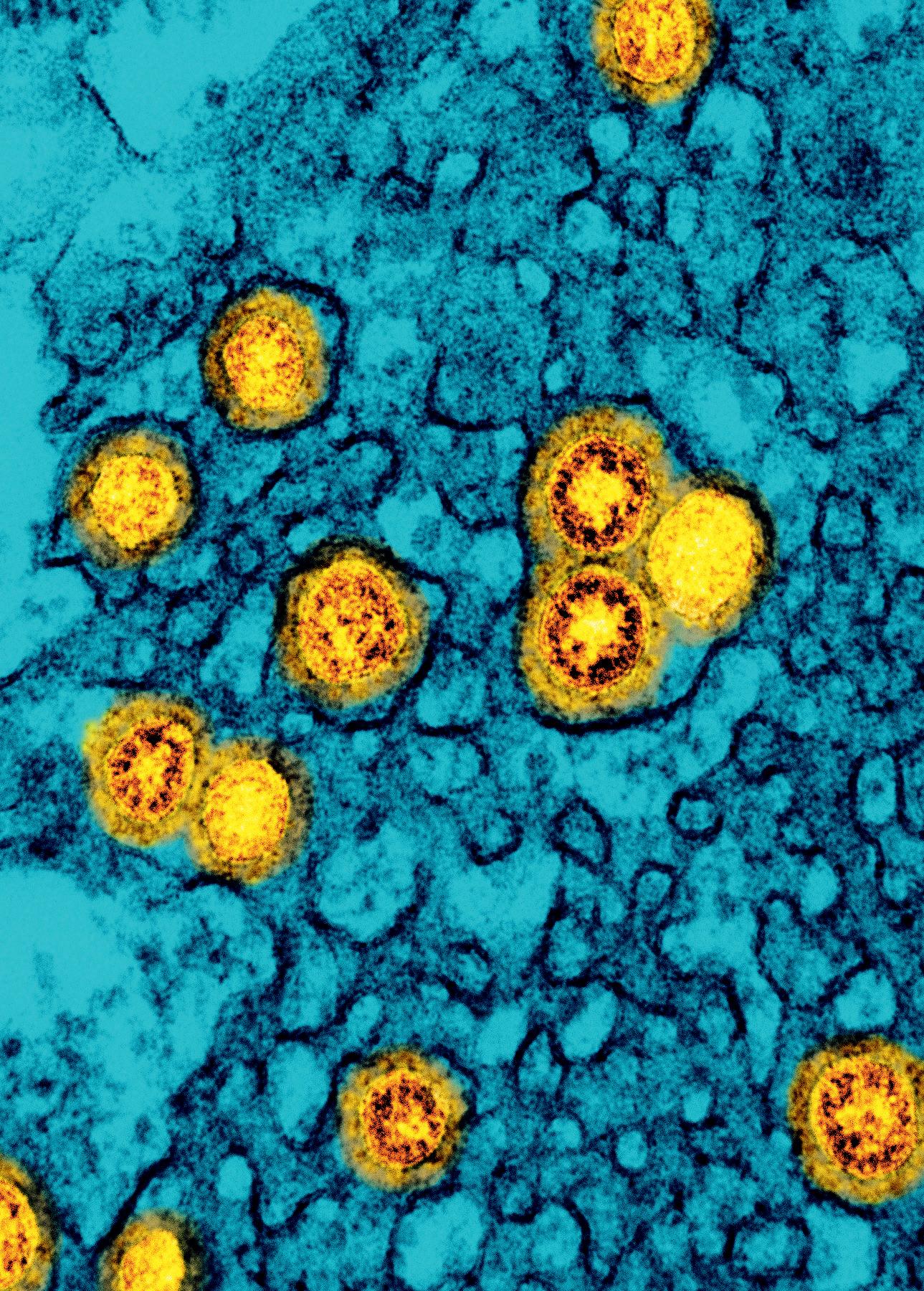
While COVID-19 no longer dominates the public discourse, the disease is still a serious public health threat, killing thousands of people globally each week. This begs the question: How do we reduce the deeply troubling level of disease and death still occurring? Furthermore, how can we ensure we’re prepared when future pandemic threats emerge?
Finding answers to these questions is at the crux of the mission of the Massachusetts Consortium on Pathogen Readiness (MassCPR), formed in March 2020 to confront the immediate and long-term challenges of the COVID-19 crisis and enhance preparedness for future pandemics. Led by Harvard Medical School in conjunction with 17 biomedical partners, MassCPR has assembled and mobilized more than 800 basic and translational scientists, clinicians, and public health professionals.
MassCPR has offered a blueprint for global cooperation and collaboration. Its scientists come from a variety of disciplines, including virology, immunology, microbiology, epidemiology, pathology, diagnostics and therapeutic development, computational biology, and clinical medicine.
“By building such a large community of collaborating investigators, MassCPR has been able to make major discoveries in multiple areas of COVID-19 research, from vaccines to diagnostics, therapeutics, epidemiology, clinical management, and pathogenesis,” says David Golan, AB ’75, MD, PhD, dean for research operations and global programs and a professor of biological chemistry and molecular pharmacology at HMS, as well as the George R. Minot Professor of Medicine at Brigham and Women’s Hospital. Golan co-leads the consortium with HMS Dean George Q. Daley, AB ’82, MD ’91, PhD, along with faculty co-leads Arlene Sharpe, AB ’75, AM ’76, PhD ’81, MD ’82, Kolokotrones University Professor and chair of the Department of Immunology in the Blavatnik Institute at HMS, and Bruce Walker, MD, Phillip T. and Susan M. Ragon Professor of Medicine at HMS and MGH and director of the Ragon Institute of MGH, MIT and Harvard.
Golan says MassCPR’s cross-institutional biobanking network is a driving force behind many of the consortium’s breakthroughs. Biobanking members collect, process, store, distribute, and track biospecimens for research, providing the scientific, medical, and public health communities with more reliable and testable indicators of SARS-CoV-2’s transmission, epidemiology, clinical course, pathogenesis, immunity, and response to treatments and vaccines. Thankfully, these efforts are being sustained by a recent $6 million grant to HMS from The Warren Alpert Foundation, which challenged the School to raise at least another $6 million to support related MassCPR efforts.
“We were very impressed by the breadth and quality of the consortium’s work,” says Robert H. Brown Jr., DPhil, MD ’75, a member of The Warren Alpert Foundation’s board of directors and the chair of its grants committee, as well as a professor of neurology at UMass Chan Medical School. “Turning the tide against a challenge as great as a pandemic requires a team effort, and we were certainly inspired by the phenomenal team assembled,” he says.
MassCPR leaders also plan to use The Warren Alpert Foundation’s grant to expand the functionality of the biospecimens database, so that researchers at all MassCPR member institutions can easily make updates and submit queries in real time. The database would connect electronic medical records (EMRs) to available clinical biospecimens in MassCPR’s biobanks—a costly endeavor due to its complexity.
Fortunately, a second donor recently fulfilled The Warren Alpert Foundation’s challenge grant by awarding HMS $6.5 million to strengthen MassCPR’s biorepository-linked bioinformatics capabilities. Together, the two grants will help create a large, EMR-linked database that investigators can use to
identify patients with specific features of COVID-19, while using the medical records to identify whether a biobank has characterized clinical biospecimens available for the investigators’ specific research needs. Having such a database will dramatically shorten the interval between identifying cohorts of patients and conducting clinical or basic biomedical research on well-curated biospecimens of interest to investigators and clinicians.
characterize biospecimens so they can be more efficiently and effectively employed.
“Improvements to the biospecimens database are essential for MassCPR to continue to lead the way in infectious disease research,” says the anonymous donor. “A more efficient and interactive database will create opportunities for investigators to develop datasets that will help them define novel pathways for vaccine and drug development.”
The anonymous donor’s grant will also support investigator-initiated pilot projects that will encourage investigators to put their best, most innovative ideas forward, which will help inform MassCPR’s strategy concerning pandemic preparedness.
David Golan“These two grants will provide MassCPR investigators access to essential biospecimens in a fair and transparent process so that they can generate important data about the current pandemic and about future pathogens with pandemic potential, and can share these results with the MassCPR community as rapidly as possible to speed progress toward treatments and vaccines,” Golan says.
The grant from the second donor, who chooses to remain anonymous, will also support efforts to build deep-phenotyped biobanks by reorganizing MassCPR’s biobanking structures and processes to accommodate the data needs of the upgraded biospecimens database, as well as fund a cluster of biological assays that will be used to better
At varying levels, both donors’ grants will support the consortium’s extensive leadership infrastructure. MassCPR distributes and coordinates resources through a dedicated team of leadership and support staff, an executive committee, a steering committee, subaward recipients, technologies and other partner resources, multiple working group meetings every month, biobanks and repositories, listservs, seminars and symposia, workshops, media and public briefings, and a broad range of events and presentations.
“I am so grateful for this tremendous investment in MassCPR,” says Daley. “These two grants will enable our consortium investigators, whose collaborative efforts have led to great triumphs in areas such as vaccine development and biospecimen collection and distribution, to continue their remarkable COVID-19 research, while also building a defense system to counter the global health threats of the future.”
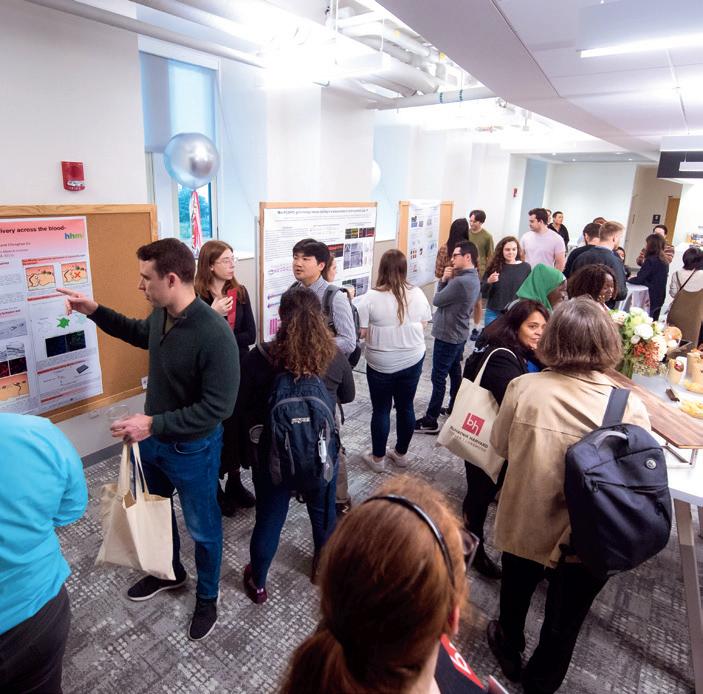
Harvard Medical School hosted an open house and community celebration Oct. 27 to showcase the new Blavatnik Harvard Life Lab Longwood. Hundreds of HMS community members enjoyed their first opportunity to see the new wet lab facilities at the heart of the lab, while also connecting with founders of companies that have taken space in the lab and toasting the promise of biomedical science to transform health and well-being for all.
The 10,000-square-foot space houses both wet and dry labs and includes offices and collaborative workspaces designed to nurture nascent biotechnology and life sciences enterprises. Located in Building C on the HMS Quad, it is available for lease to early-stage, high-potential biotech and life sciences start-ups founded by Harvard students, alumni, postdoctoral scholars, and faculty.
The Blavatnik Life Lab is a key component of the HMS Therapeutics Initiative, which aims to help the School’s researchers transform their most promising fundamental biological discoveries into high-impact medicines faster, more efficiently, and more affordably.
“I’m proud to support this multidisciplinary initiative and help drive the discovery and application of new therapeutics throughout the Harvard medical community,” said Len Blavatnik, MBA ’89, founder and chairman of Access Industries and head of the Blavatnik Family Foundation, as well as a member of the HMS Board of Fellows. “The Life Lab will also connect scientists with business mentorship through Harvard Business School, further benefiting the life sciences ecosystem.”
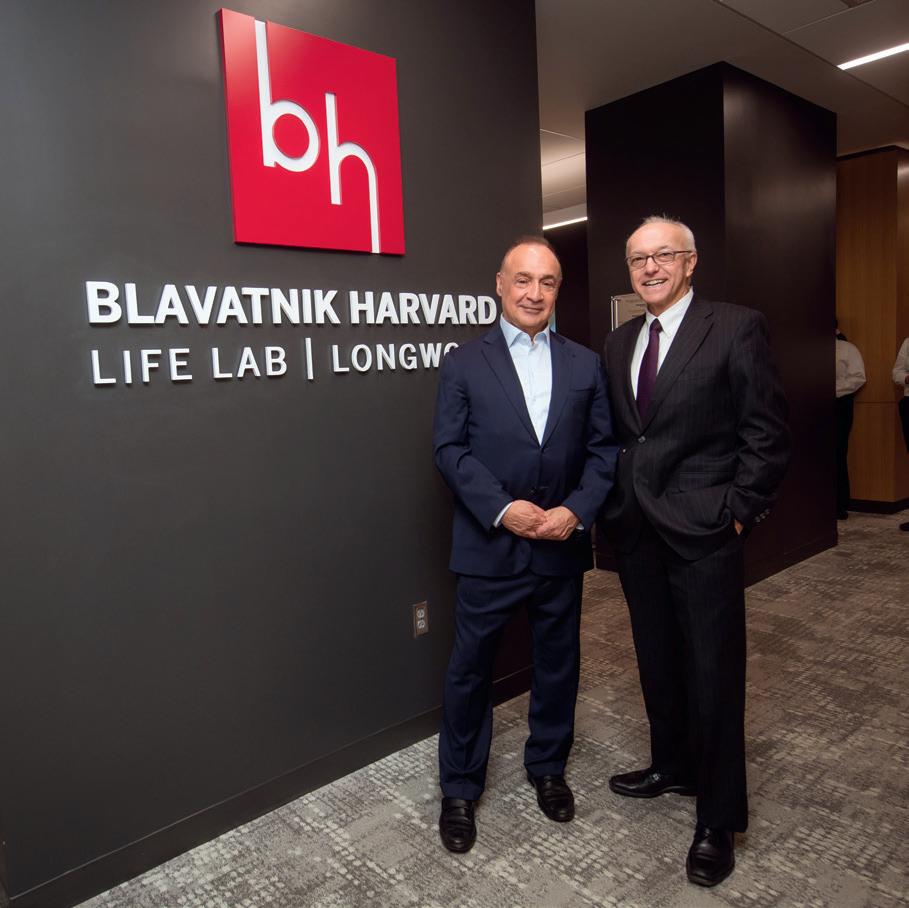
“By building such a large community of collaborating investigators, MassCPR has been able to make major discoveries in multiple areas of COVID-19 research.”
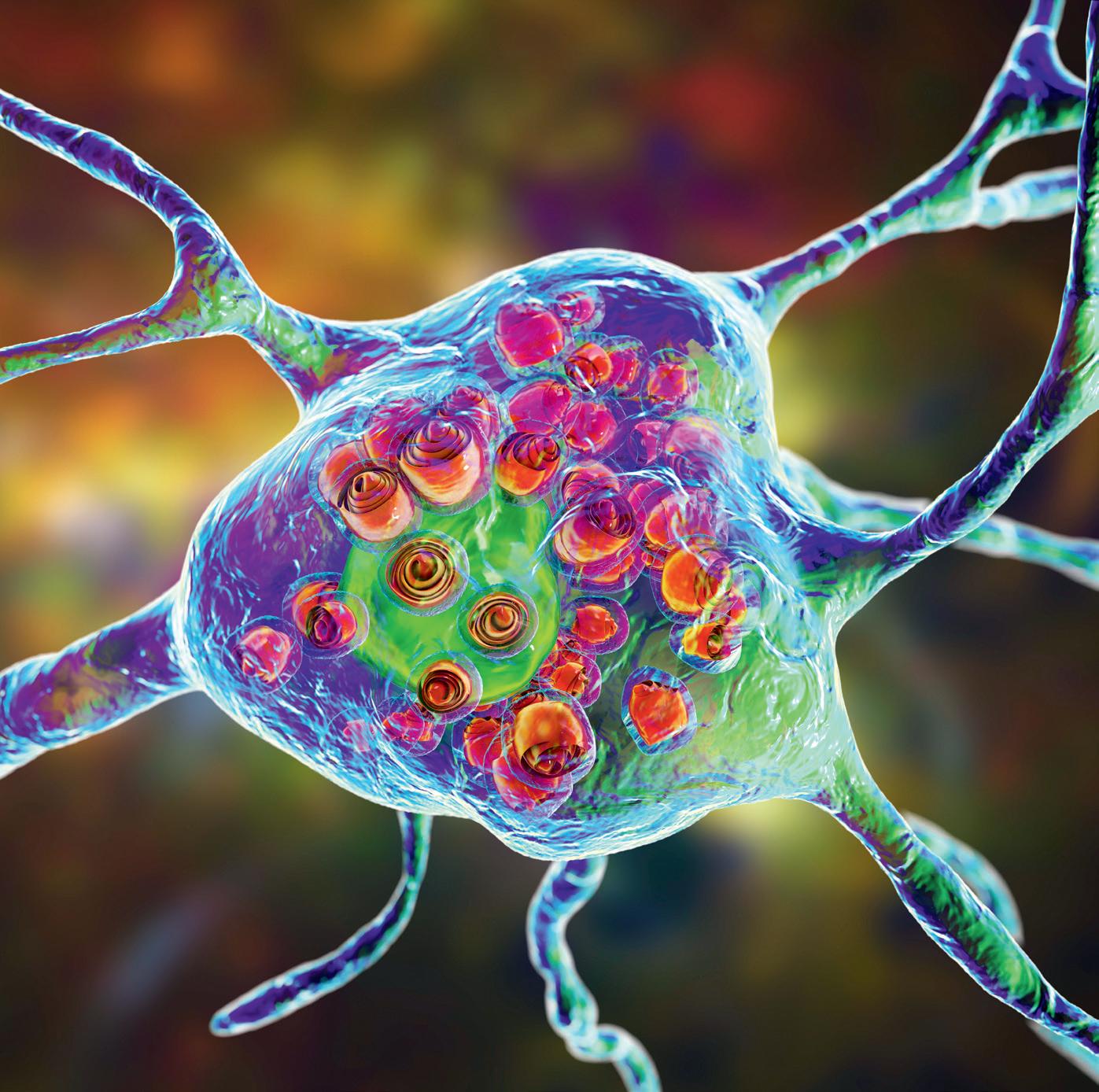
Diseases such as Alzheimer’s are linked to gene disorders that cause the agonizing symptoms experienced by their victims and that result in the eventual destruction of the brain.
In hopes of paving the way for possible treatments, Wade Harper, PhD, the Bert and Natalie Vallee Professor of Molecular Pathology and chair of the Department of Cell Biology in the Blavatnik Institute at Harvard Medical School, is using a $1.4 million grant from The Warren Alpert Foundation to analyze a particular group of genes with ties to various neurodegenerative diseases.
Robert H. Brown Jr.“There are more than four dozen different human genes whose mutations lead to a large class of diseases called lysosomal storage diseases (LSDs),” Harper says. LSDs are inherited metabolic diseases that are characterized by an abnormal buildup of various toxic materials in the body’s cells as a result of enzyme deficiencies, according to the National Organization for Rare Disorders. They may affect different parts of the body, including the skeleton, brain, skin, heart, and central nervous system.
Harper has focused his career on the topic of protein and organelle quality control, cellular processes that are often defective in neurodegenerative diseases such as Alzheimer’s and Parkinson’s. This effort has recently expanded to understand lysosome quality control, with direct relevance to LSDs.
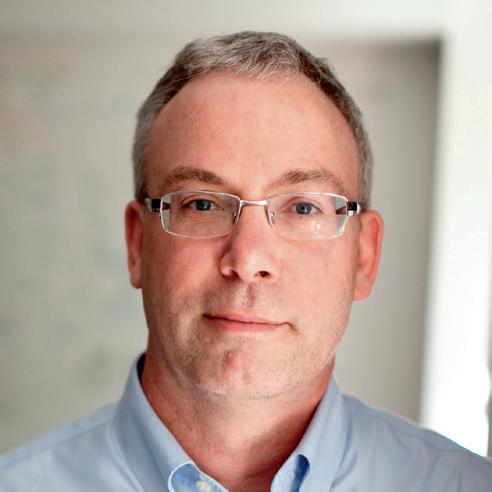
“We were impressed by the enormous scope of activities in Dr. Harper’s lab to study the devastating effects of lysosomal storage diseases,” says Robert H. Brown Jr., DPhil, MD ’75, a member of The Warren Alpert Foundation’s board of directors and the chair of its grants committee, as well as a professor of neurology at UMass Chan Medical School.
While there have been numerous studies on a subset of LSD genes, Harper says, few have tried to address the cell biology defects across all or most of the disease genes.
“Our study is different in that we are trying to compare mutations in all of the genes using the same set of cell biological and biochemical trial procedures,” he says. The Harper Lab will focus on phenotypes, or the physical expression of one or more genes. For the study’s purposes, this means the symptoms that can arise from defective genes, such as those that cause the memory loss typical of dementia.
“The hope is if we find previously unknown phenotypic relationships between different disease genes that suggest a common cellular defect,” Harper says, “then this will generate attention on these specific phenotypes or genes in terms of the future development of therapeutics.”
Wade Harper earned his PhD in chemistry from the Georgia Institute of Technology in 1984 and performed postdoctoral work at HMS before joining the faculty at Baylor College of Medicine in 1988. He returned to HMS in 2003 as a faculty member of the Department of Pathology, then joined the Department of Cell Biology in 2011 before becoming department chair in 2014.
“We were impressed by the enormous scope of activities in Dr. Harper’s lab to study the devastating effects of lysosomal storage diseases.”
Henry Oster, MD ’71 (pictured), knows firsthand about the influence of an institution on a career trajectory. As a transfer student more than 50 years ago from the University of South Dakota School of Medicine, he wondered how he would fit in with the Harvard Medical School community.

As the ensuing decades would show: quite well.
The Ventura, California, infectious disease physician has established two charitable gift annuities (CGAs) totaling $500,000 for the future benefit of the School, and he hopes to continue to give back, in part because of the way he was received and integrated into HMS so long ago.
but also influenza and other infectious diseases. He has also recently become a mentor to students at the California Health Sciences University College of Osteopathic Medicine.
Oster’s gift will provide vital discretionary funds that will enable HMS to support priority needs and invest in emerging opportunities to advance the School as a leader in medical education and research.
“I have generous regard for several of my institutions of higher learning, of which Harvard is a prime example,” says Oster, who received substantial financial help as a student through loans and grants. “I believe our academic experiences so shape our lives that any subsequent good fortune ought to be shared.”
Oster says he was attracted by the tax benefits a CGA provides and inspired by those who have been able to make larger financial contributions to the School. But the deciding factor was the possibility that his gift could be used to assist the next generation of physicians battling the next pandemic, particularly those who work in public health clinics—a passion he shared with his late wife, Pamela. And when he is able, he hopes to give even more.
“I transferred … as a third-year student and immediately felt a welcoming and forgiving environment,” says Oster. Still practicing medicine, he has been busier than ever in a COVID-19 work environment that has resulted in understaffing and continuing concerns about not only COVID
“I had the great fortune to be married to a career educator and public health professional,” he says. “I have more reason than ever to support our mutual lifelong aspirations.”
An international group of experts gathered Oct. 17 at Harvard Medical School to discuss new findings on the causes of acute and chronic pain and examine potential new strategies for treatment. These experts, representing 11 teams in academia, government, and industry, presented their work as part of the 2022 Bertarelli Symposium, titled “Understanding and Conquering Pain.”
The symposium also celebrated the accomplishments of the Bertarelli Program in Translational Neuroscience and Neuroengineering, a decade-long partnership among scientists, engineers, clinicians, and students at HMS and the École Polytechnique Fédérale de Lausanne (the Swiss Federal Institute of Technology), a public research university in Lausanne, Switzerland. This program helped to accelerate the translation of basic biomedical developments into improved health for people with neurological disorders.
In his opening remarks, HMS Dean George Q. Daley, AB ’82, MD ’91, PhD, expressed his gratitude for the program and its founder, HMS Board of Fellows Chair Ernesto Bertarelli, MBA ’93, who is pictured at the symposium with his daughter, Chiara. “I am incredibly impressed with the way investigators across disciplines have united to solve clinical problems in imaginative ways. It is a confirmation of Ernesto’s original vision and an exciting promise of treatments and cures to come,” Daley said.
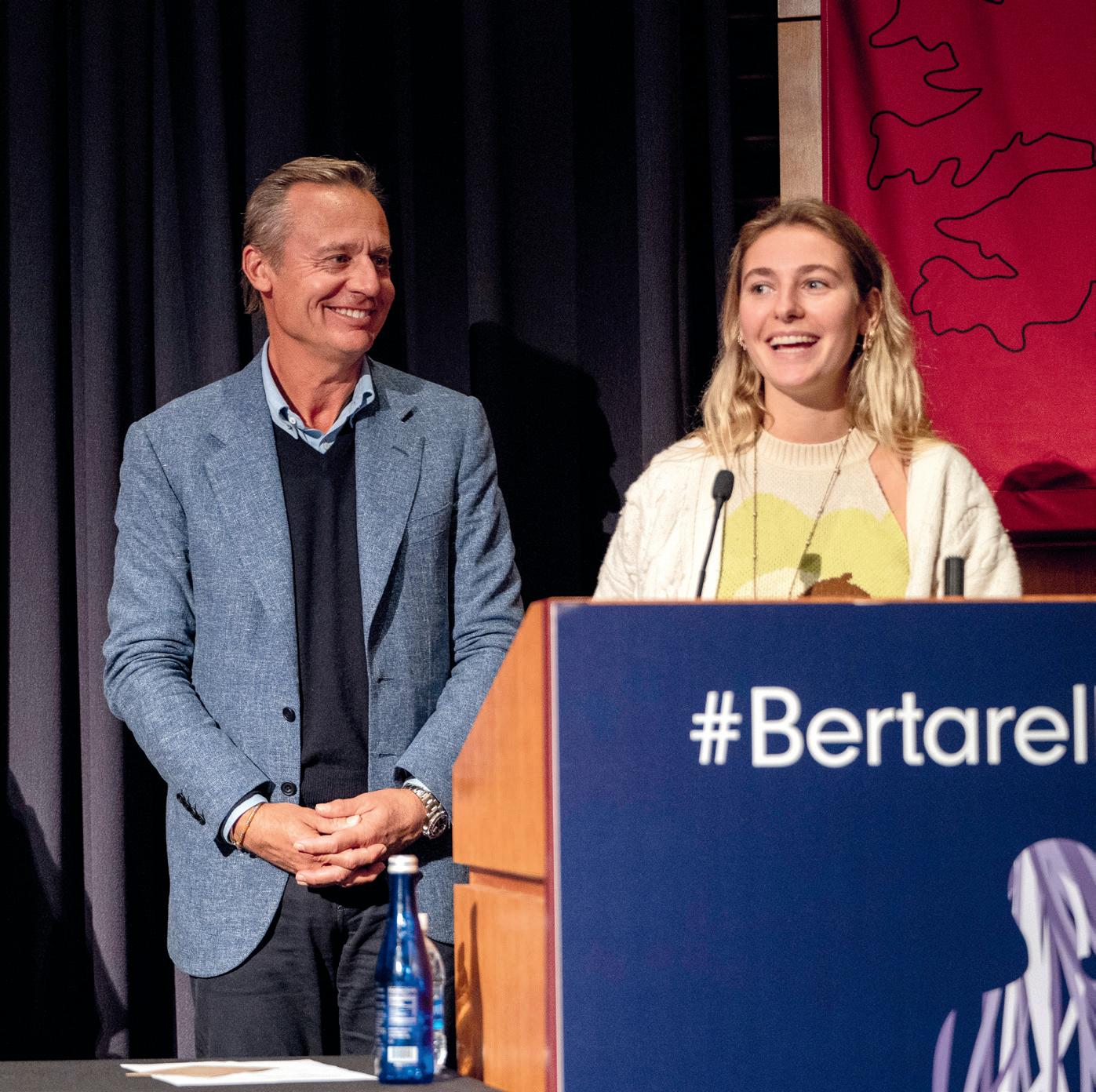
“I believe our academic experiences so shape our lives that any subsequent good fortune ought to be shared.”
Henry Oster
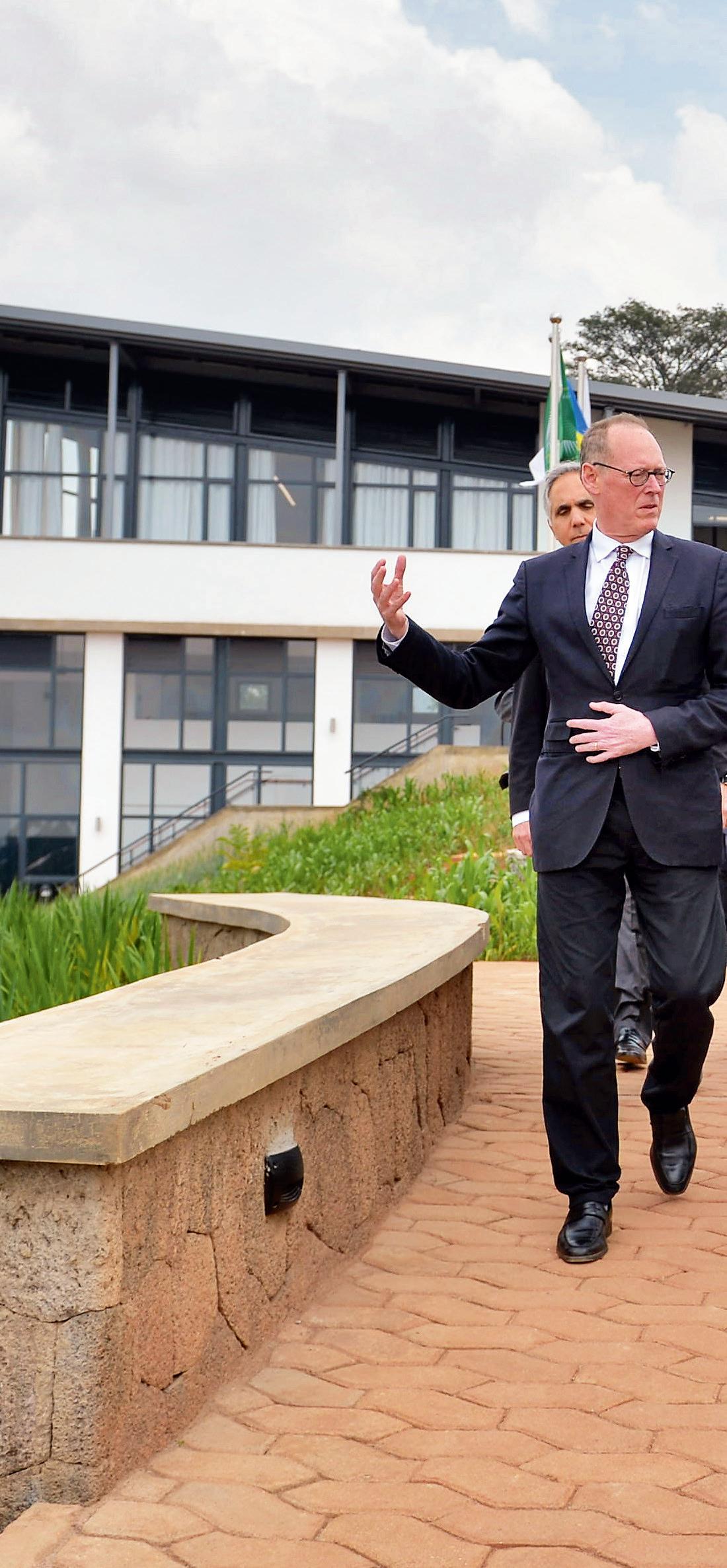
A $50 million gift from Cummings Foundation will build upon and amplify the work of the late Paul Farmer, MD ’88, PhD ’90, a champion of global health.
The gift establishes the Paul Farmer Collaborative of Harvard Medical School and the University of Global Health Equity (UGHE) in Rwanda. It will be divided equally between the two institutions.
Farmer, a physician and medical anthropologist, was the Kolokotrones University Professor and chair of the Department of Global Health and Social Medicine in the Blavatnik Institute at HMS, chancellor of UGHE, and co-founder and chief strategist of Partners In Health (PIH), an international health and human rights organization.
He died on Feb. 21, 2022, at the age of 62, while teaching at UGHE, an initiative of PIH.
“During his all-too-brief time here with us, Paul was the vital physical link between Harvard and UGHE,” says Joyce Cummings, who co-founded Cummings Foundation with her husband, suburban Boston real estate magnate Bill Cummings. “In Paul’s absence, it is critical that we act to ensure that this bond and his work endure.”

HMS Dean George Q. Daley, AB ’82, MD ’91, PhD, says the foundation’s gift “will allow us to continue Paul’s transformative work and honor his vision to reshape health care delivery for marginalized populations and to connect HMS with the University of Global Health Equity. It is a powerful reminder that as a global community, we are only as strong as the most vulnerable among us, which Paul understood better than anyone.”
The Paul Farmer Collaborative
The gift is intended to build on Farmer’s legacy and enable researchers at both institutions to deepen their exploration of social medicine, a field focused on the many factors influencing a person’s health, and pursue fundamental questions about social determinants of health and humane caregiving. The overarching goal of the collaborative is to catalyze the development of sustainable, equitable health systems that improve health care delivery to underserved populations.
Farmer and global health and social medicine and clinical faculty at HMS and affiliated hospitals have collaborated with Rwandan health care providers and researchers on a number of efforts combining research, clinical innovation, and training. In 2012, HMS faculty and collaborators from the Rwandan Ministry of Health launched an intensive global health delivery course at the Rwinkwavu Hospital Training Center in eastern Rwanda, modeled on the Global Health Delivery Intensive Program developed at Harvard. The HMS master’s program in global health delivery has hosted students from Rwanda and has been adapted as a program at UGHE. And in 2022, a
team from HMS and Rwanda won the National Institutes of Health Technology Accelerator Challenge for Maternal Health for a project to develop artificial intelligence tools that help community health workers identify patients at risk for surgical-site infections.
“This remarkably timely, generous, and transformative gift from Cummings Foundation will sustain and build upon the ongoing collaboration between our department and the University of Global Health Equity,” said Allan Brandt, PhD, interim head of the HMS Department of Global Health and Social Medicine and the Amalie Moses Kass Professor of the History of Medicine at HMS. “The Paul Farmer Collaborative will ensure that our faculties and students partner to extend the goal of global health equity and assure that those most in need receive the highest quality care.”
One of the latest academic and medical collaborations between the two institutions is the newly launched Center for Equity in Global Surgery at UGHE. The center aims to develop solutions to correct the imbalance in access to care through research and innovation, education and training, policy, advocacy, and global collaborations, according to a paper describing the center’s launch in early February 2022. The paper, co-authored by Farmer and colleagues from HMS and UGHE, is one of Farmer’s last pieces of published research.
The Paul Farmer Collaborative will strengthen the efforts of the HMS Program in Global Surgery and Social Change and the UGHE Center for Equity in Global Surgery, an effort that the paper described as a vehicle for global surgery solutions developed in Africa through research, education, advocacy, and training.
In the days before Farmer died, he gave two virtual talks for the University of Hawaii from the campus
of UGHE, where he was excited to be doing rounds with the first class of third-year medical students at the school.
One of his presentations was on his latest book, “Fevers, Feuds, and Diamonds: Ebola and the Ravages of History,” in which he discusses the complex social, historical, and economic context of the West Africa Ebola outbreak. Another was on the importance of focusing on equity and social justice to improve health, drawing heavily on examples of his collaborative work in Rwanda. In the question-and-answer periods of both talks, Farmer shared several lessons learned in his decades of work on global health equity.
• Independent and collaborative research, teaching, and education at HMS and the University of Global Health Equity in Rwanda (UGHE).
• Exchanges of students, postdoctoral trainees, and faculty between HMS and UGHE.
• An annual global conference and workshop on health equity, global health delivery, research, education, and social medicine.
• An endowed Cummings Foundation Professorship of Global Health Equity at HMS to continue advancing Paul Farmer’s ideals and objectives.
• Clinical training opportunities for medical students and residents, with an initial focus on building surgical capacity and surgical health innovation in low-resource settings. In the long term, the training could expand to include other clinical specialties.
they thought were not possible in places like rural Rwanda: you can’t treat cancer, you can’t have an ICU, you can’t build a hospital or a medical school, many people told him.
Farmer noted that he was speaking to his audience in Hawaii from a thriving academic medical center campus, built in a rural area in Rwanda that didn’t even have electricity just a few years ago.
“This place is blossoming,” Farmer said. “We need to stand up to people who say ‘you can’t do this,’ because it’s being done.”
Landmark funding
To effect real change, collaboration must include material support, not just symbolic solidarity, Farmer said. Empathy is essential, he noted, but it takes “staff, stuff, space, systems, and support” to deliver the promise of modern medicine to people everywhere. In dollars and time commitment, this support from Cummings Foundation funds one of the most significant relationships that HMS has in Africa.
and a strong commitment to equity to improve health systems in East Africa and beyond. Cummings Foundation’s visionary gift will greatly facilitate the exchange of knowledge between students and faculty in Boston and Butaro.”
Created by PIH, UGHE was launched in 2015 with substantial support from Cummings Foundation, the Bill & Melinda Gates Foundation, and the Republic of Rwanda. The government donated land for the rural campus, plus major new roadways and improved access to water, electricity, and internet connectivity.
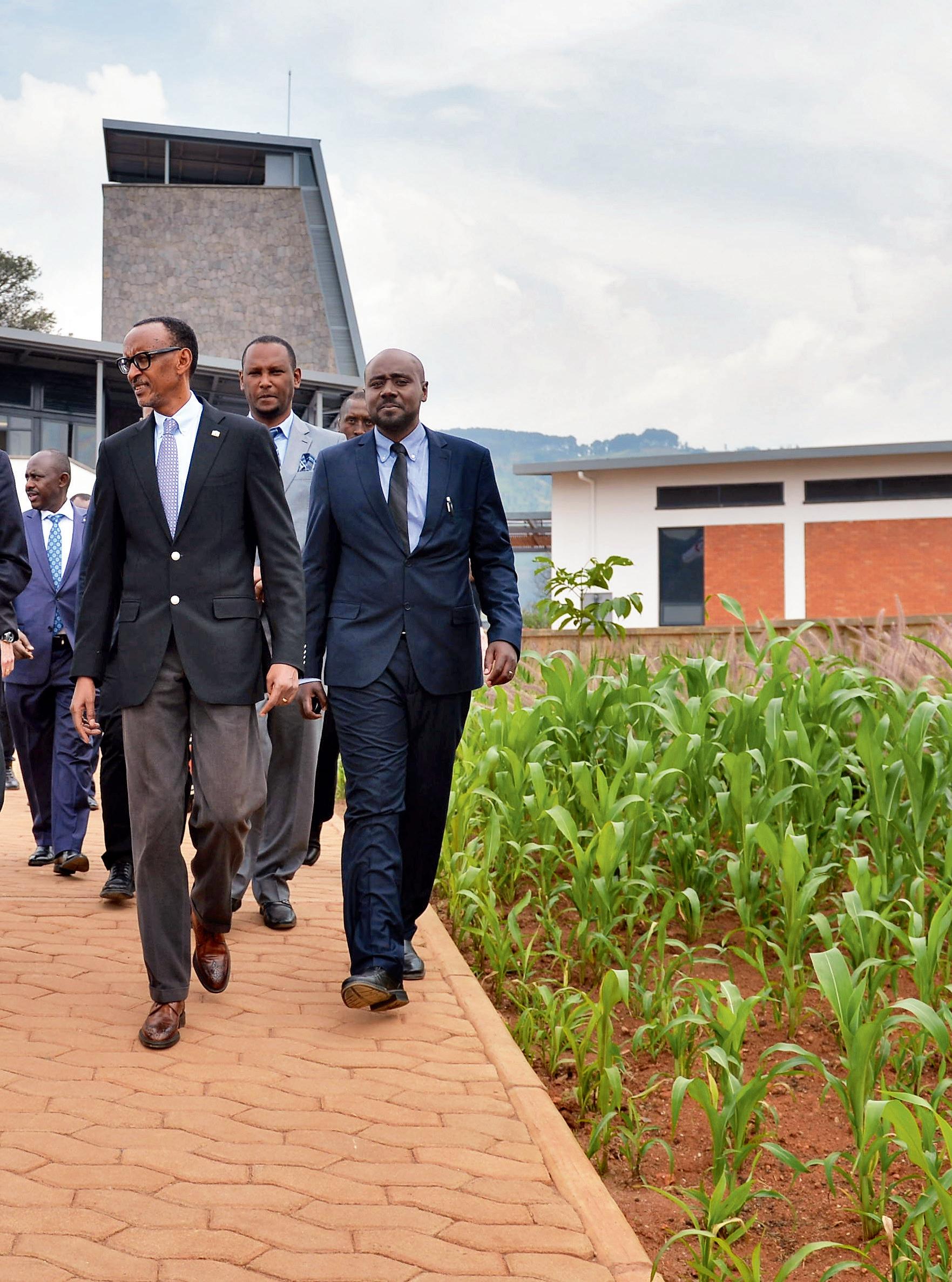
“Rwanda was our family’s home for many years, and it is where Paul left us,” said Farmer’s wife, Didi Bertrand Farmer. “I am honored that this collaboration between Harvard/HMS and PIH/UGHE bears Paul’s name in the pursuit of social justice and equity in health, to which he devoted his life. I am so thankful for the generosity of Bill and Joyce Cummings.”
“We
He also described the kinds of things he often heard from people, including many who work in the field of global health. They often listed things
“It is incredibly exciting to have a nearly 400-year-old institution collaborating at such a significant level with a seven-year-old institution,” said Joyce Cummings. “Meaningful international partnerships are essential to effectively teaching global health, so Harvard will benefit immensely from solidifying its relationship with a top-notch university in such a highly desirable locale for learning and teaching about global health delivery. And UGHE will enjoy enormous reputational benefits, affording it greater visibility to major international life sciences and pharma firms seeking appropriate sites for investment, operations, and collaboration.”
Jim Yong Kim, MD ’91, PhD ’93, co-founder of PIH and the successor to Farmer as chancellor of UGHE, says: “UGHE is training a new generation of leaders who will bring together the best evidence
With the new gift, Cummings Foundation also honors Lawrence S. Bacow, JD ’76, MPP ’76, PhD ’78, Harvard University’s 29th president, who is stepping down from the role on June 30, 2023.
“Harvard is so grateful for Cummings Foundation’s support to carry on Paul Farmer’s important work,” says Bacow. “Through their thoughtful and generous philanthropy, Bill and Joyce have improved the lives of countless people throughout the world. This gift will build on their important work.”
Joyce Cummings says: “We are so pleased to honor the legacies of both Paul and Larry, two dear friends. Our hope is that this long-term funding will help to carry on their commitments to leadership and service on a global scale.”
“I am honored that this collaboration … bears Paul’s name in the pursuit of social justice and equity in health, to which he devoted his life. I am so thankful for the generosity of Bill and Joyce Cummings.”
Didi Bertrand Farmer
need to shift the conversation to what we’re hearing from poor people,” Farmer said. “I hear people saying, we want schools for our children, we want clean water, we want jobs, and we’d like to have our kids go to places like the UGHE.”
Amid a roar that sounded more like the crowd at a Super Bowl than one at a medical school Match Day gathering, 167 graduating students ripped open envelopes at Harvard Medical School on March 17 to learn where they were headed next on their journeys to becoming physicians.

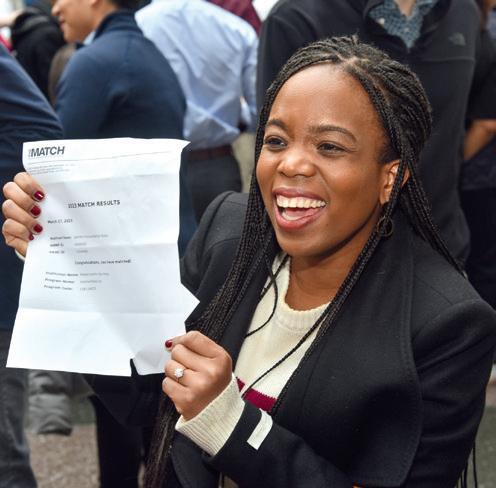
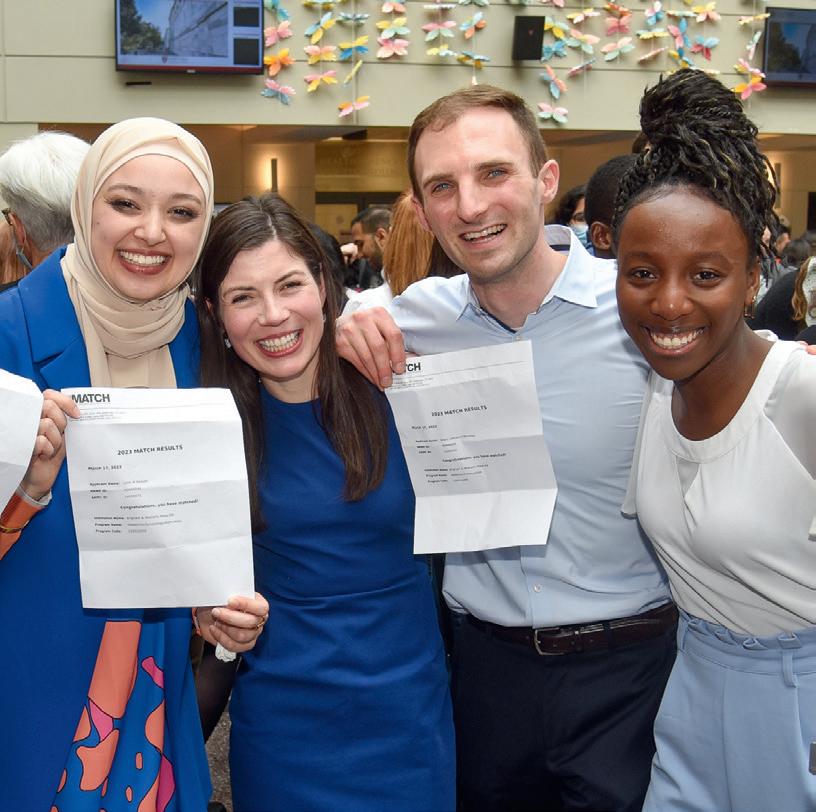
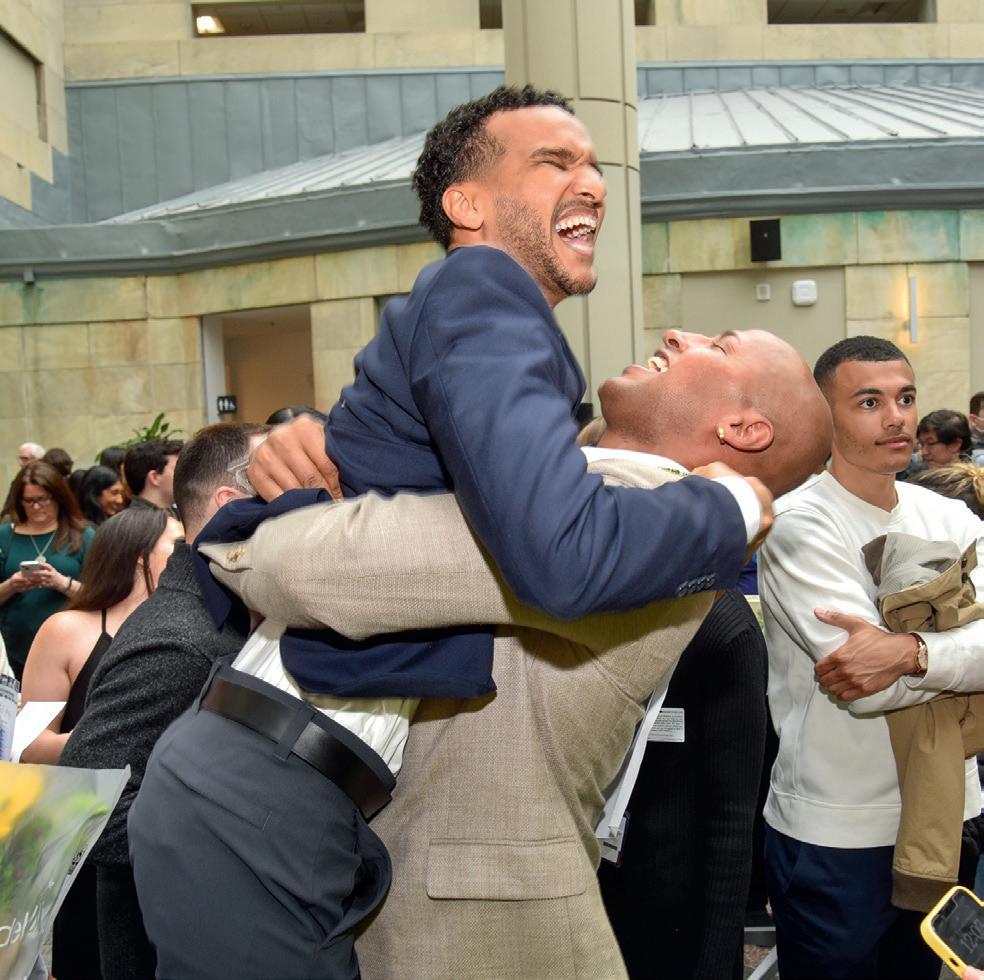
Dean for Medical Education Edward M. Hundert, MD ’84, and Dean for Students Fidencio Saldaña, MD ’01, MPH ’05, encouraged the students who congregated in the Tosteson Medical Education Center atrium to thank family members, teachers, mentors, and friends for their support throughout their time in medical school.
After opening his envelope, Richard Lu, who matched in otolaryngology at Weill Cornell Medical Center, echoed the reaction expressed by many of the students, saying that the Class of 2023’s time in medical school was uniquely affected by the COVID pandemic.
“I think COVID really reminded us why we’re here and why we want to be in the hospitals and the clinics taking care of patients,” he said.
53%
MATCHED AT AN HMS-AFFILIATED PROGRAM FOR SOME PART OF THEIR TRAINING
A 2021 report by the Rand Corporation noted that, in 2019, only 45% of people in the U.S. who needed it received any mental health treatment. That translates to an unmet need for more than 30 million Americans.
“At Harvard Medical School, we see it as part of our role to advance mental health research, education, and service initiatives,” HMS Dean George Q. Daley, AB ’82, MD ’91, PhD, told attendees of the 2023 virtual Hollis L. Albright, MD ’31 Symposium, held March 31. This year’s symposium focused on the work the School and its affiliate hospitals are doing to combat the world’s mental health crisis.
The event’s keynote speaker, Vikram Patel, MBBS, MSc, PhD (pictured during symposium), the Pershing Square Professor of Global Health in the Blavatnik Institute at HMS, leads the School’s EMPOWER program. This program uses a suite of digital tools, methods, and procedures to enable frontline workers (e.g., community health workers, peer
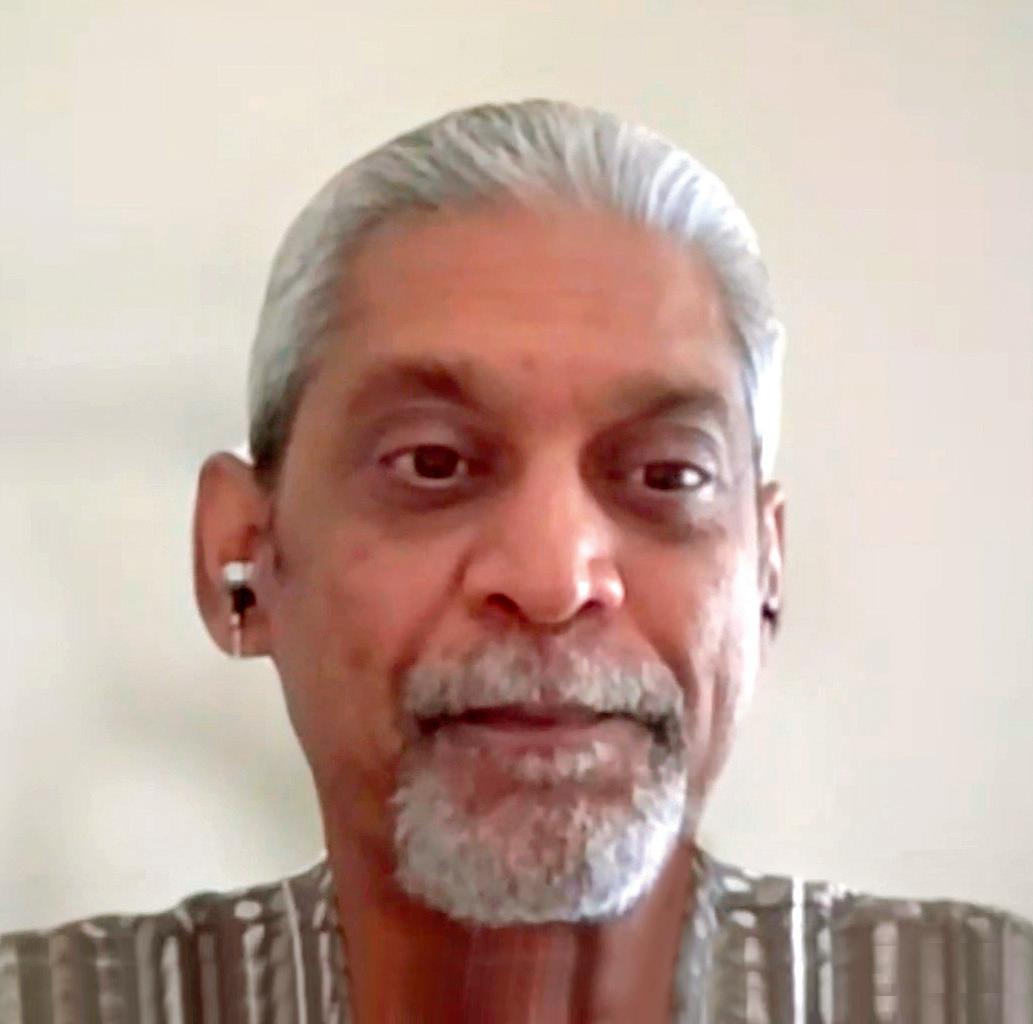
support workers, and nurses) to learn, master, and deliver brief psychosocial interventions that address mental health problems.
“The primary energy we need to invest in is to build the base of the foundation of care—the frontline workers who can reach people where they are and provide psychosocial interventions,” Patel told attendees. “Brief interventions from anywhere—just a few sessions, up to a dozen sessions—can show significant improvements.”
Tenley E. Albright, MD ’61, delivered the symposium’s opening remarks. She and her brother, Nile L. Albright, AB ’61, MD, established the endowed symposium at HMS in memory of their father, an alumnus who devoted his life to surgery, patient care, and student mentorship. Colby Hyland, MD ’23, and Akash Premkumar, MD ’23, were recognized during the symposium as the recipients of the 2023 Albright Scholar Award for their demonstrated excellence in the surgical sciences.
The largest percentage of students matched in the following:
30% Internal Medicine
9% Anesthesia
7% Radiology
6% General Surgery
6% Obstetrics and Gynecology
5% Orthopedics
5% Otolaryngology
A distinct mission of the Gray Foundation is to accelerate research, improve treatment, and raise awareness for people who have inherited mutations in the tumor-suppressing BRCA1 and BRCA2 genes. These mutations increase the risks of breast, ovarian, pancreatic, and prostate cancers and can both be inherited and arise sporadically. Since 2019, the foundation has awarded more than $8.3 million in grants to Harvard Medical School faculty members supporting several projects to prevent breast cancer development by facilitating early detection and treatment of people who carry these mutations.
Buoyed by the foundation’s support, Joan Brugge, PhD, the Louise Foote Pfeiffer Professor of Cell Biology in the Blavatnik Institute at HMS, and colleagues from the School, its affiliate hospitals, and other labs around the world have used various technologies to investigate the minute changes that take place within cells on the road from health to tumor formation. In one project, they employed samples derived from human breast tissue; in a subsequent project, they began testing the hypotheses generated from these human studies by using mouse models, which can provide invaluable experimental approaches for identifying and achieving control of the steps involved in tumor formation—and can do so faster than studies in humans.
“Our findings have provided evidence of alterations that accumulate in breast tissues in association with aging and BRCA1 and BRCA2 mutations,” says Brugge, who is also co-director of the Ludwig Center at Harvard. “However, the number of samples that were examined in our previous work was too small to distinguish which factors associated with aging and BRCA1/2 mutations contribute to cancer initiation.”
Thankfully, the Gray Foundation, which has given over $160 million to leading research institutions for the treatment and prevention of BRCA-related
David Livingstoncancers, recently pledged to support a larger collaboration, co-led by Brugge. “With this new funding, we will be able to not only collect a greater number of breast tissues, but also carry out deeper and broader analyses to better understand the nature of changes with age and high riskmutations,” says Brugge, “in order to generate hypotheses about tumor initiation and strategies to prevent tumorigenesis.”
Dana Zucker, MBA ’95, chief executive officer of the Gray Foundation, praised Brugge for her steadfast dedication to BRCA research.
“Dr. Brugge is an impactful researcher who has committed her energy to answering key provocative questions for the BRCA field, particularly by focusing on early events that predispose BRCA mutation carriers to cancer,” Zucker says. “Her rigor, creativity, and resourcefulness have resulted in progress that the Gray Foundation wishes to catalyze further.”
Breast tissue from a BRCA1 mutation carrier is stained with antibodies to mark distinct cell populations (red and green). A small population of cells have features of both these distinct cell populations and appear yellow. These cells increase with age and may be more abundant in women harboring different cancer-promoting mutations, making them a particularly intriguing cell population.

IMAGE: Dr. Nomeda Girnius, Brugge Laboratory
In the second project, Sorger and Santagata are teaming up with Ronny Drapkin, MD, PhD, director of gynecologic cancer research at the Basser Center for BRCA at the University of Pennsylvania Perelman School of Medicine, to use tissue imaging methods developed at HMS to study the earliest stages of serous ovarian cancer in patients with BRCA mutations. The group aims to precisely define the composition, state, and spatial organization of the tumor-immune microenvironment.
This team-science approach is a tenet of the Gray Foundation, which believes that the best minds should be linked and synchronized to solve some of the most challenging biomedical problems, particularly the predisposition to cancer for BRCA carriers and how to prevent or intercept the development of cancer. “No lab on its own could provide the holistic view that is needed to advance the field of BRCA research,” Zucker says.
The foundation also recently awarded grants to support two projects led by collaborators Peter Sorger, AB ’83, PhD, the Otto Krayer Professor of Systems Pharmacology in the Blavatnik Institute at HMS, and Sandro Santagata, MD, PhD, an HMS associate professor of pathology at Brigham and Women’s Hospital and an associate professor of systems biology in the Blavatnik Institute at HMS. Sorger and Santagata work closely together in the HMS Laboratory of Systems Pharmacology to develop new single cell imaging methods to advance precision cancer care. In one project, Sorger and Santagata are working to develop and maintain a shared electronic resource and data portal in support of the Gray Foundation’s research into early detection, prevention, and treatment of BRCA1/2-associated cancers.
“We anticipate that the Gray Foundation BRCA Atlas Data Portal will become a centerpiece of the foundation’s cancer program, helping to accelerate research, attract new collaborators and trainees, and increase clinical impact,” Sorger says.
Sadly, one integral Gray Foundation-supported BRCA research team member died unexpectedly in October 2021. David Livingston, AB ’61, MD, was Brugge’s esteemed project partner at Dana-Farber Cancer Institute. In addition to being a valued mentor to myriad students and junior scientists, Livingston was a prominent expert on the molecular origins of breast and ovarian cancer. His work had been the cornerstone of many studies of cancer susceptibility linked to BRCA function and mutations. By understanding the tumorsuppressive properties of BRCA1 and BRCA2, he paved the way for studying novel approaches to breast and ovarian cancer prevention.
“David’s relentless energy and contributions to the BRCA field were legendary,” says Gray Foundation founders Jon and Mindy Gray. “While we will never be able to replace his presence, we are honored to help build on his legacy of mentorship, scholarly research, and collaboration through the endowment of the David M. Livingston Chair at Dana-Farber Cancer Institute.”
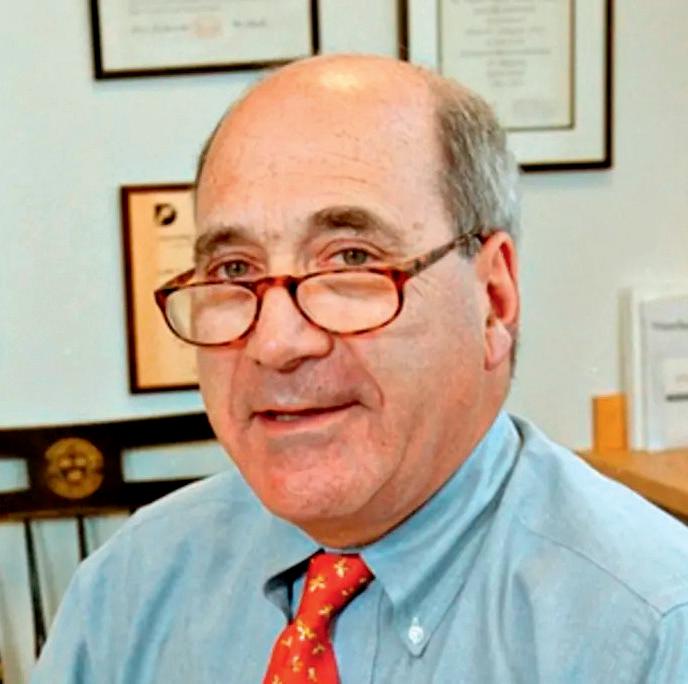
“No lab on its own could provide the holistic view that is needed to advance the field of BRCA research.”
Dana Zucker
The following newly established Harvard Medical School professorships were recently celebrated, recognizing the generosity of their respective benefactors and the accomplishments of their inaugural incumbents.
A celebration Oct. 3 at HMS marked the establishment of the Adeline Rose Wydotis Professorship of Neurosurgery and the appointment of William T. Curry Jr., AB ’93, MD (top), of Massachusetts General Hospital (MGH), as the inaugural incumbent. The professorship will be renamed the Robert L. Martuza Professorship of Neurosurgery upon the retirement of Robert L. Martuza, MD ’73 (bottom), the William and Elizabeth Sweet Distinguished Professor of Neuroscience in the Department of Neurosurgery at MGH.
George L. King, MD, of Joslin Diabetes Center, was recognized as the inaugural incumbent of the Thomas J. Beatson, Jr. Professorship of Diabetes during a Nov. 29 celebration at the Harvard Club of Boston.

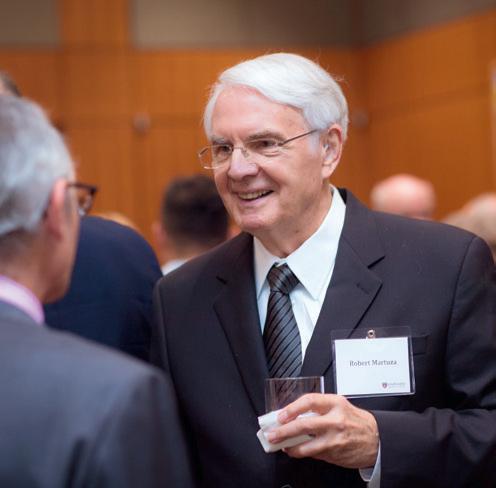
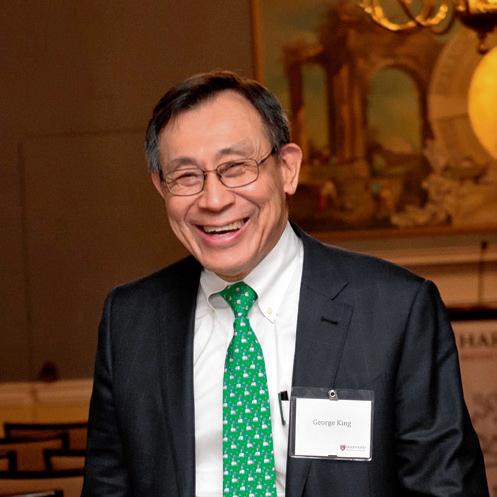
Michael S.D. Agus, MD (left), of Boston Children’s Hospital (BCH), was celebrated Nov. 30 at HMS as the inaugural incumbent of the Constantine Anast, MD Professorship of Pediatrics, which will be renamed the Joseph A. Majzoub, MD Professorship of Pediatrics upon the retirement of Joseph A. Majzoub, MD (right), the Thomas Morgan Rotch Professor of Pediatrics at BCH.

Vijay G. Sankaran, PhD ’09, MD ’10 (right), of Boston Children’s Hospital (BCH), was honored Nov. 21 at HMS as the inaugural incumbent of the Jan Ellen Paradise, MD Professorship of Pediatrics, which will be renamed the George Q. Daley, MD, PhD Professorship of Pediatrics upon the retirement of George Q. Daley, AB ’82, MD ’91, PhD (left). In addition to his role as dean of Harvard Medical School, Daley is a professor of pediatrics and a professor of biological chemistry and molecular pharmacology at BCH and the Caroline Shields Walker Professor of Medicine at HMS.
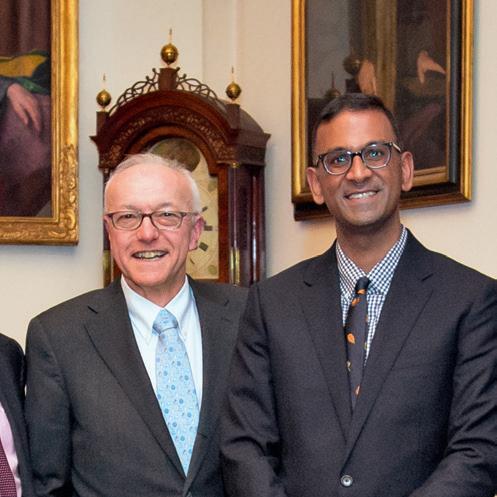
Ana C. Anderson, PhD ’99, of Brigham and Women’s Hospital, speaks at a celebration held Jan. 30 in Boston to mark her appointment as the inaugural Albert H. Coons Associate Professor of Neurology in the Field of Immunologic Diseases.

Bing Chen, PhD (right), of Boston Children’s Hospital, was recognized March 21 at Harvard Medical School as the inaugural incumbent of the Rosalind Franklin, PhD Professorship of Pediatrics. This professorship will be renamed the Stephen C. Harrison, PhD Professorship of Pediatrics upon the retirement of Stephen C. Harrison, AB ’63, PhD ’68 (left), the Giovanni Armenise-Harvard Professor of Basic Biomedical Science at HMS.

Salmaan A. Keshavjee, SM ’93, AM ’95, PhD ’98, MD (right), director of the HMS Center for Global Health Delivery, celebrated with Arthur M. Kleinman, AM ’74, MD, the Esther and Sidney Rabb Professor of Anthropology in the Harvard Faculty of Arts and Sciences and a professor of both medical anthropology and psychiatry at HMS, after Keshavjee was honored Jan. 25 at HMS as the inaugural incumbent of the Professorship of Global Health and Social Medicine in the Field of Medical Anthropology. The professorship will be renamed the Arthur Kleinman Professorship of Global Health and Social Medicine upon Kleinman’s retirement.
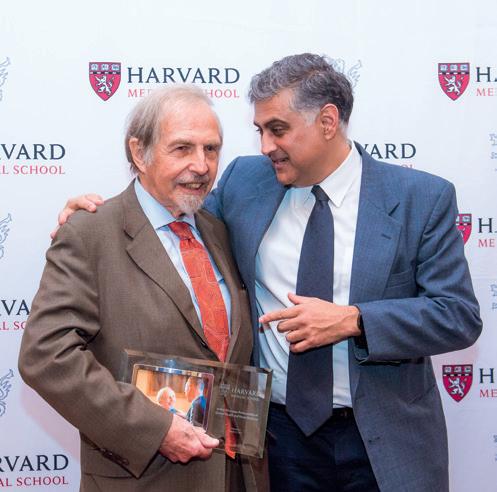
P. Ellen Grant, MD (top), of Boston Children’s Hospital (BCH), was honored March 20 at Harvard Medical School as the inaugural incumbent of the Kaethe Beutler, MD Professorship of Pediatrics. The professorship will be renamed the Friedhelm Hildebrandt, MD Professorship of Pediatrics upon the retirement of Friedhelm Hildebrandt, MD (bottom), the William E. Harmon Professor of Pediatrics Nephrology at BCH.

On April 4, Harvard Medical School hosted a celebration in Boston honoring Jim Tananbaum, MD ’89, MBA ’91, and his wife, Dana Tananbaum, for their recent $10 million gift to Harvard Medical School, which established the Tananbaum Healthcare Transformation Fund and the Tananbaum Catalyst Fund for the Center for Computational Biomedicine (CCB).
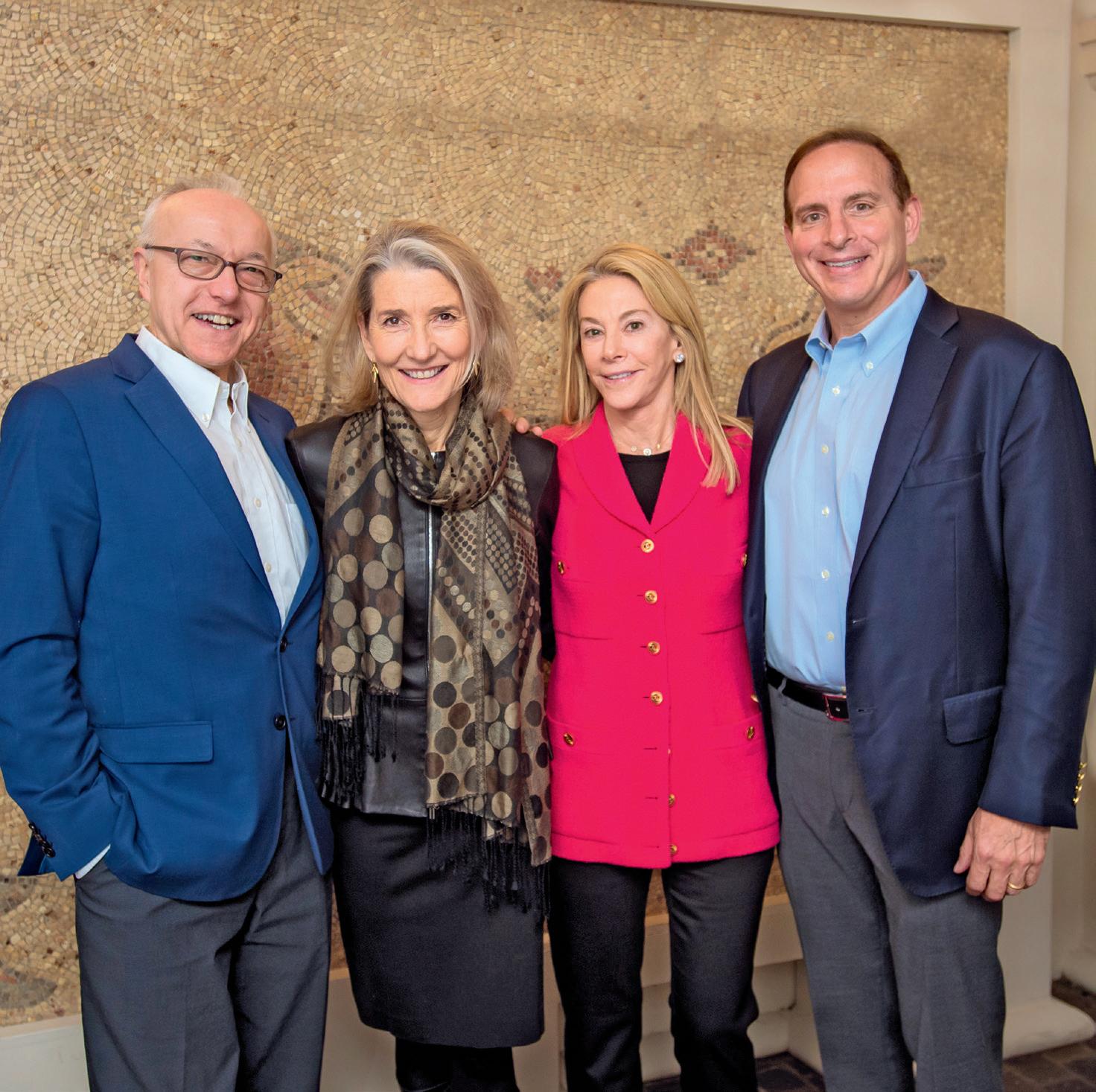
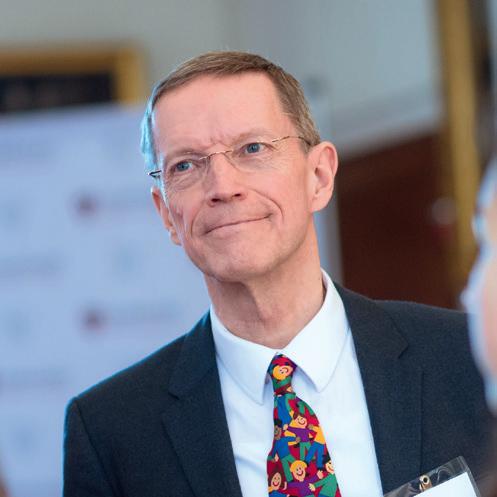
The Tananbaums’ gift is helping to build the critical computational and data infrastructure needed to support the broad application of machine learning and artificial intelligence methodology to health care and its delivery. In addition, the gift is supporting activities to enable entrepreneurship, helping to create the technologies and companies of the future that will provide in-home and personalized care for everyone. Such activities will involve collaboration between HMS and Harvard Business School.
Both funds are being managed by Robert Gentleman, PhD, the executive director of the CCB, which aims to leverage data and computation to transform research and improve health.
Nisha Kumar Behringer, AB ’91, MBA ’95, knows how transformative financial aid can be. Her husband, Michael Behringer, JD, and both her mother and father were recipients of aid while they pursued their educations, helping them to launch important careers in business, neuroscience, and pediatrics, respectively. To pay it forward, Kumar Behringer and her husband have established the Drs. Nirmal and Ish Kumar MD Scholarship Fund at Harvard Medical School.
faculty, and the research,” says Kumar Behringer. “We want to support the next generation of medical leaders, and we want to ensure financial flexibility to attract the most talented people to Harvard,” she adds.
HMS Dean for Medical Education Edward M. Hundert, MD ’84, notes that financial aid not only helps uphold the School’s twin principles of need-blind admissions and need-based aid but also has a ripple effect that spreads far beyond one student’s experience.
“I am so grateful for people like Nisha and Michael, who have chosen to give so generously to this important area so that students can have the financial latitude to pursue their true passions,” says Hundert. “Our graduates’ impact is felt worldwide. They care for the most vulnerable populations, guide our nation’s higher education and medical institutions, inform public policy, transform our understanding of disease, and inspire future leaders.”
Nisha Kumar BehringerThis scholarship is named for Kumar Behringer’s mother and father, who spent their lives giving back in appreciation of the kindness they experienced from Boston’s medical community.
“We’ve been affiliated with Harvard for over 30 years. I know the caliber of the students, the
David W. Nierenberg, AB ’71, MD ’76, was recently named chair of alumni giving at Harvard Medical School. In this role, he will help engage and steward alumni, support Class Agents and Reunion Committees in their fundraising efforts, and update the Alumni Council on philanthropic giving from alumni.
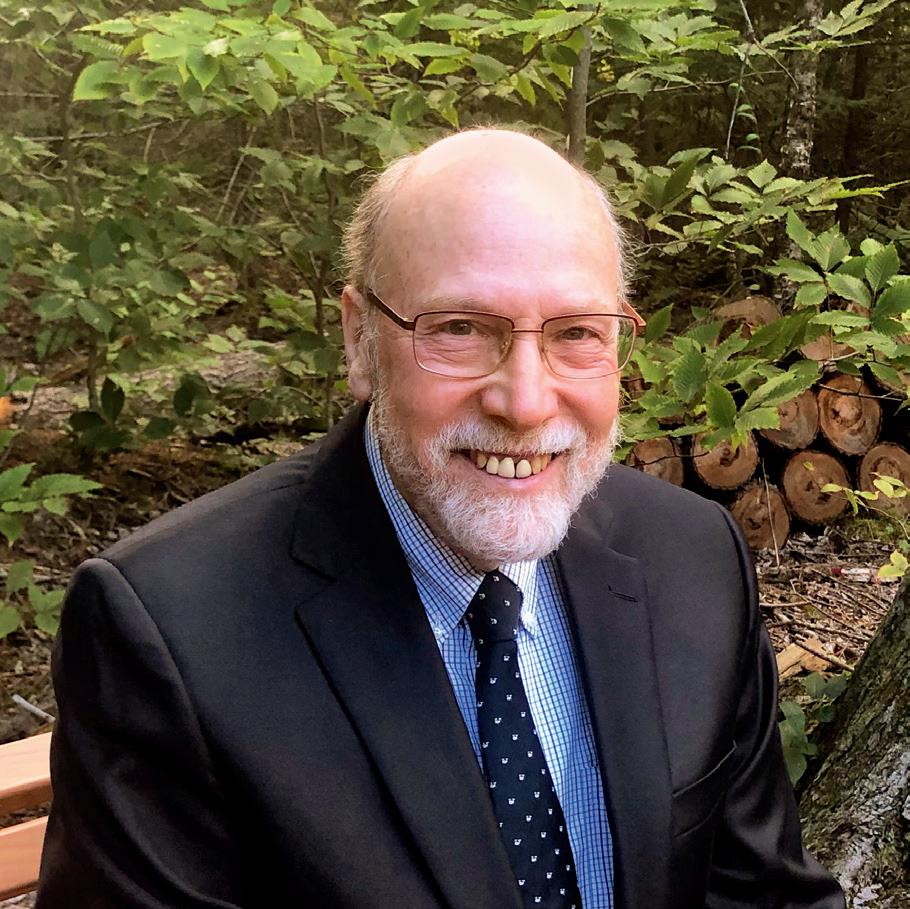
Since graduating, Nierenberg has served as a Class Agent, helping to solicit his classmates to make gifts to support the School, and has worked on Reunion Committees, helping to plan which activities would be the most fun and meaningful to alums and working to make the Reunion class gift as impactful as possible.
A member of the Dean’s Council, which comprises individuals who give $2,000 or more annually to HMS, Nierenberg says it would be impossible for HMS to pursue its aspirations without generous philanthropy from loyal alumni.
“The School is ambitious in its efforts to innovate its curriculum, increase financial aid, lower student loan obligations, and improve diversity and equity, among so many other efforts,” he says.
“If we want HMS to continue to lead in all of these important areas, then we as alumni need to show our leadership in our patterns of giving back to HMS, one by one, as we are able.”
The couple chose to fund the scholarship through a charitable lead trust (CLT), which is designed to provide a fixed amount each year to HMS. The remaining assets will go to other beneficiaries at the end of the trust term. Any appreciation is distributed to heirs with reduced or no estate or gift tax liability.
“A CLT was tax efficient for us—both from an estate planning perspective and a current tax benefit,” says Kumar Behringer. “It’s a terrific vehicle people should be aware of.”
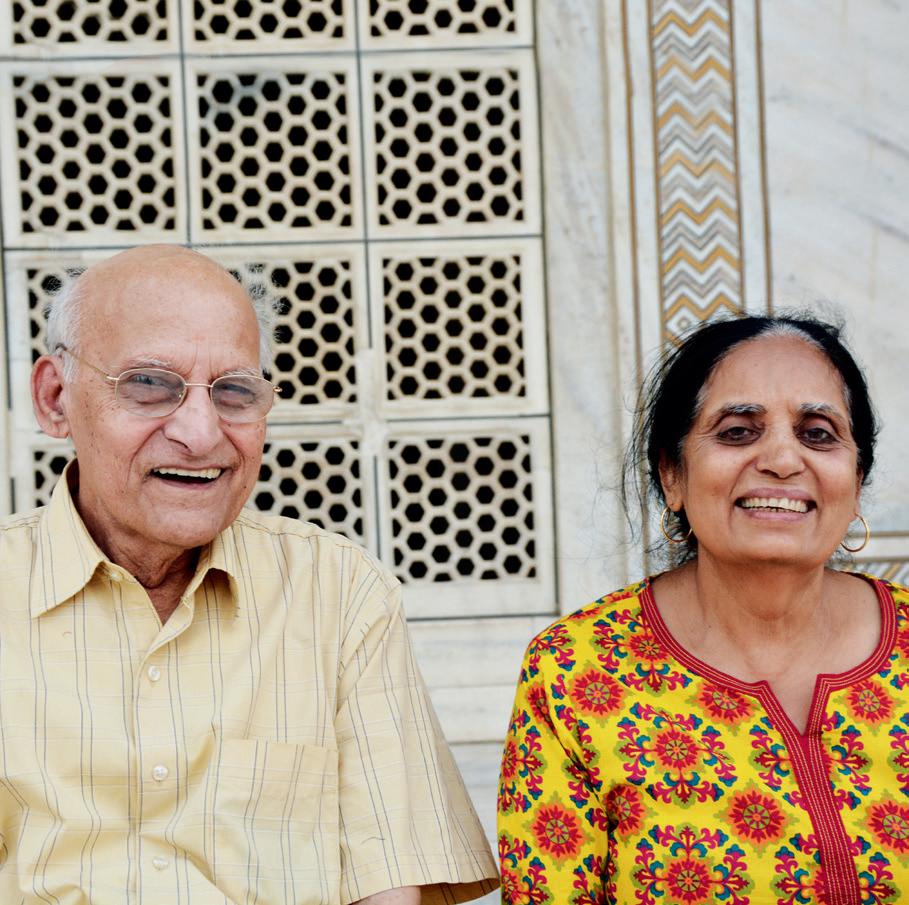
“We want to support the next generation of medical leaders, and we want to ensure financial flexibility to attract the most talented people to Harvard.”
Most women diagnosed with high-grade serous carcinoma—the most common type of ovarian cancer—initially respond well to treatment but inevitably relapse with cancer that becomes more and more resistant to subsequent rounds of chemotherapy. Backed by a $1.3 million grant from the Dr. Miriam and Sheldon G. Adelson Medical Research Foundation (AMRF), the Brugge Lab at Harvard Medical School is pursuing a promising path toward preventing relapse of this cancer.
“We are collaborating with several AMRF investigators to probe tumor tissues from ovarian cancer patients before and after chemotherapy treatments,” says Joan Brugge, PhD, the Louise Foote Pfeiffer Professor of Cell Biology in the Blavatnik Institute at HMS and co-director of the Ludwig Center at Harvard Medical School.
“We want to identify the cellular pathways that are required for ovarian cancer cells to survive initial chemotherapy, and then develop treatment strategies to kill these therapy-resistant tumor cells.”
The AMRF was established in 2006 to better understand, address, and fill the void of life-saving treatments for countless diseases. It currently funds more than 60 investigators pursuing pioneering research across eight program areas. The heart of the AMRF model is the conviction that collaborative research will generate more knowledge and opportunities for breakthroughs faster than traditional research models carried out by single individuals or laboratories.
The Brugge Lab has benefited from AMRF support for more than 15 years and has now received nearly $6 million for ovarian cancer research. Previous AMRF-supported studies by the Brugge Lab have led to the development of a clinical trial to evaluate a drug combination that was found to be efficacious in preclinical studies of ovarian cancer.
“In addition, we used an innovative approach to identify the mechanisms that allow therapyresistant tumor cells to survive and proliferate,” says Brugge. “This approach is now being used to examine therapy resistance mechanisms associated with multiple types of breast cancer.”
AMRF Chief Scientific Officer Kristian Hedstrom, PhD, says Brugge and her lab have been instrumental in driving successful endeavors, from novel discoveries to innovative clinical interventions, in conjunction with their AMRF colleagues at other institutions. “It’s an honor to partner with and continue supporting Dr. Brugge and some of the world’s most distinguished scientists in the AMRF model of open collaboration,” says Hedstrom, “as they continue to make exceptional progress toward preventing, reducing, and eventually eliminating ovarian cancer.”
a region from an ovarian tumor is stained to mark areas of high glucose uptake (red) and cell proliferation (green). This type of analysis makes it possible to evaluate different properties of tumor cells and whether these correlate with cell proliferation.
IMAGE: Dr. Nomeda Girnius, Brugge
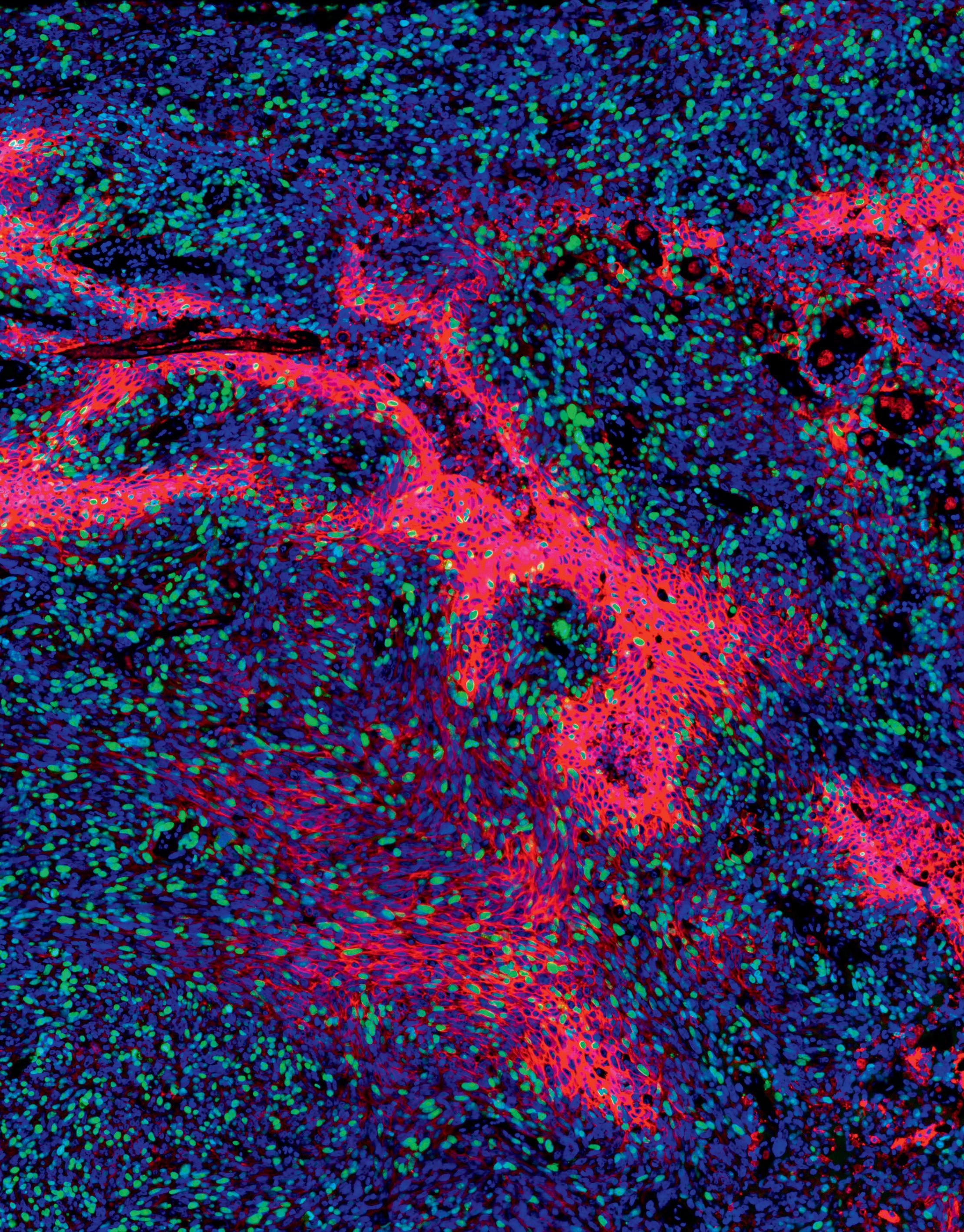
Ovarian cancer is the second most common gynecologic cancer in the U.S., and it causes more deaths than any other cancer of the female reproductive system, according to the Centers for Disease Control and Prevention.
Laboratory
“It’s an honor to partner with and continue supporting Dr. Brugge and some of the world’s most distinguished scientists in the AMRF model of open collaboration as they continue to make exceptional progress toward preventing, reducing, and eventually eliminating ovarian cancer.”
Kristian Hedstrom
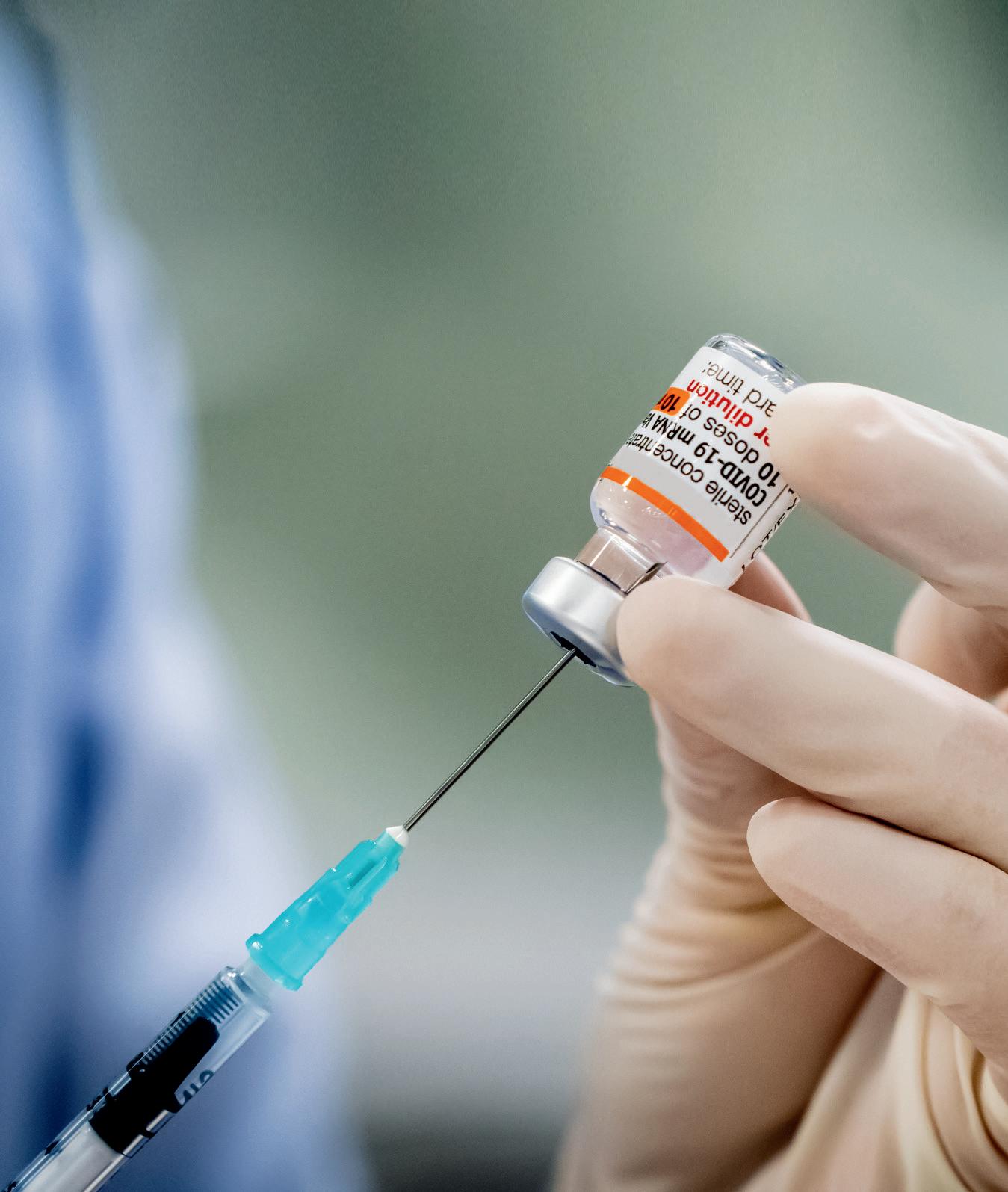
“For of all sad words of tongue or pen, the saddest are these: ‘It might have been!’”
John Greenleaf Whittier, a 19th-century editor and poet, saw plenty of horrors in his lifetime, from plagues to famines to the Civil War. But his death in 1892 was well before the flu pandemic of 1918 and the COVID-19 pandemic that began in 2020.
CEPI’s mission is the development of pandemic vaccines within 100 days of identification of a virus and their distribution to all parts of the world, regardless of a region’s economics.
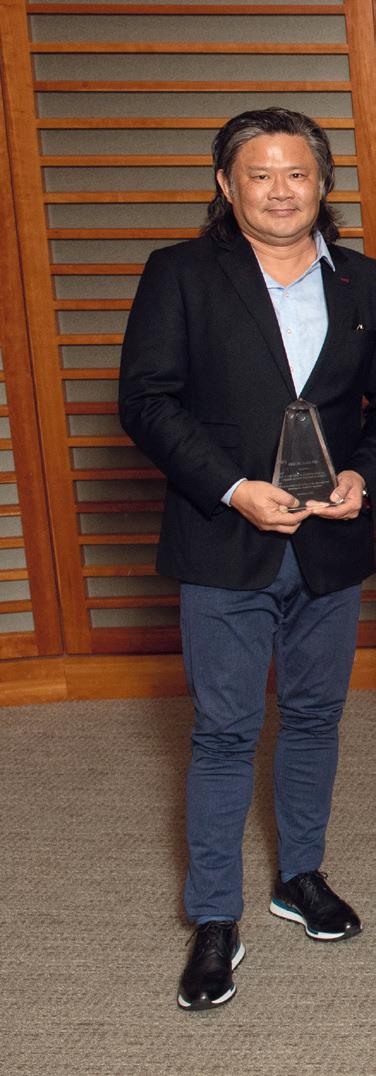
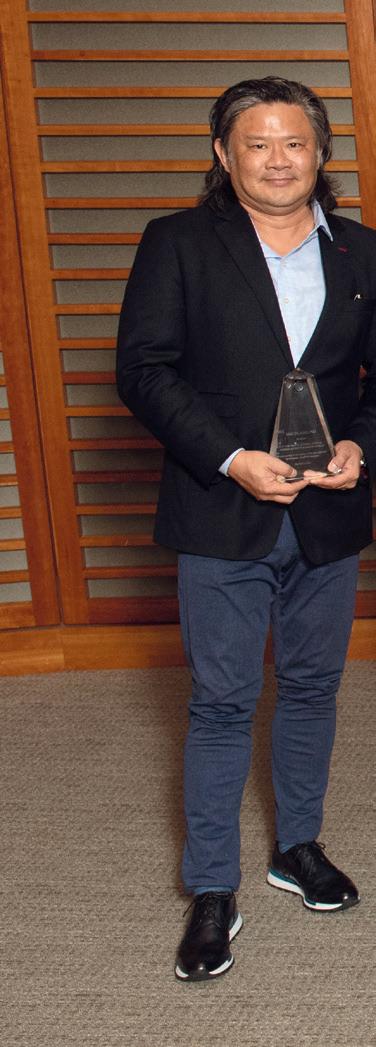
The public-private partnership has given $1.27 million to a team of scientists led by Debora Marks, PhD, an associate professor of systems biology in the Blavatnik Institute at Harvard Medical School, for an initial pilot study to forecast SARS-CoV-2 immune escape evolution for early detection of high escape variants and informing vaccine design. Marks’ collaborators on the study are Jacob Lemieux, DPhil, MD ’15, an assistant professor of medicine at Massachusetts General Hospital; Jeremy Luban, MD, the David J. Freelander Memorial Professor in AIDS Research at UMass Chan Medical School; and Michael Seaman, PhD, an associate professor of medicine at Beth Israel Deaconess Medical Center.
The Coalition for Epidemic Preparedness Innovation (CEPI) was formed in 2017 at the World Economic Forum in Davos, Switzerland, to turn “it might have been” into “it never should.” Key to
“The large and growing volume of genome information, from all forms of life, presents unprecedented opportunities for computational biologists,” Marks says. She notes that the challenge for this scientific generation is to turn an avalanche of sequence information into meaningful discovery of principles, methods, or strategies for molecular manipulation to find therapies—or, in CEPI’s case, vaccines for pandemics.
The strategy of the Marks-led project is to identify SARS-CoV-2 strains with the greatest potential for vaccine-induced immunity escape and forecast mutations on top of those strains with the greatest potential for escape. In short, Marks and her team will work to identify the viruses most likely to spread to large populations and make this information publicly available on a dedicated website: evescape.org. Scientists could then use this information to develop vaccines that serve the greatest number of people in the least amount of time.
“The large and growing volume of genome information, from all forms of life, presents unprecedented opportunities for computational biologists.”
Debora Marks
The mission of the Coalition for Epidemic Preparedness Innovations is to accelerate the development of vaccines and other biologic countermeasures against epidemic and pandemic threats so they can be accessible to all people in need.
left: Eric Huang,


On Oct. 6, Harvard Medical School held a symposium to celebrate the 2022 Warren Alpert Foundation Prize winners, whose work changed the trajectory of the COVID-19 pandemic through basic science and translational research that led to lifesaving mRNA COVID-19 vaccines. The discoveries made by these five scientists have opened the door for an array of mRNA-based therapies and vaccines for a range of diseases, including cancer, heart disease, and bleeding disorders.
HMS Dean George Q. Daley, AB ’82, MD ’91, PhD, who chairs The Warren Alpert Foundation Prize scientific advisory board and delivered opening remarks at the symposium, says the design of the mRNA vaccines is “a triumph of basic science, clinical medicine, and public health,” and that the vaccines represent a marvelous example of the power of collaboration between academia and industry and across scientific disciplines and geographic boundaries.
The prize winners were Eric Huang, PhD, general manager and chief scientific officer of Moderna Genomics; Katalin Karikó, PhD, senior vice president of BioNTech SE and an adjunct professor of neurosurgery at the Perelman School of Medicine at the University of Pennsylvania; Uğur Şahin, MD, co-founder and chief executive officer of BioNTech SE and the Helmholtz Professor for mRNA Cancer Immunotherapies at the German Cancer Research Center in the Helmholtz Institute Mainz, as well as a professor at the University Medical Center of the Johannes Gutenberg University Mainz; Özlem Türeci, MD, co-founder and chief medical officer of BioNTech SE and the Helmholtz Professor for Personalized Cancer Immunotherapies at the German Cancer Research Center in the Helmholtz Institute Mainz; and Drew Weissman, MD, PhD, the Roberts Family Professor in Vaccine Research at the Perelman School of Medicine at the University of Pennsylvania.
It was totally in character for Kathie Goodman, AB ’64, MD ’68, PhD, to give back: as a literacy volunteer, a reading tutor for adults, and a supporter of the arts. So it should come as no surprise that she specified in her will that a generous gift be made to establish the J. Kathleen Greenacre Goodman Scholarship at Harvard Medical School. This fund will support students in the Harvard/MIT MD-PhD Program, which aims to train the next generation of premier and diverse physician-scientist leaders.
“We are so grateful for Dr. Goodman’s generosity and vision in supporting this multitalented and supremely dedicated cohort of students who integrate clinical medicine and a broad spectrum of basic and social sciences to make a difference for patients today and into the future,” said Loren Walensky, MD, PhD, director of the program and an HMS professor of pediatrics at Dana-Farber Cancer Institute.

Goodman died March 25, 2022, at age 79. She graduated magna cum laude from Radcliffe College in 1964 and with honors from HMS in 1968. She completed post-graduate training and earned a doctorate in clinical pharmacology from the University of London. She worked at St. Albans City Hospital and was a member of the Royal College of Physicians.
Goodman’s medical specialties included clinical pharmacology and pulmonary disease treatment. She worked as a pulmonary physician in Philadelphia, serving on several medical boards and committees, and held several faculty positions in medical schools at Temple University and the University of Pennsylvania. She was also recognized for her editorial positions and numerous pulmonology and pharmacology research publications. Her final position, before retiring in 2002, was staff physician for Student Health Services at the Hospital of the University of Pennsylvania.
Learn more about the prize and its winners at warrenalpert.org From Özlem Türeci, Uğur Şahin, Katalin Karikó, and Drew Weissman“We are so grateful for Dr. Goodman’s generosity and vision in supporting this multitalented and supremely dedicated cohort of students.”
Loren Walensky
Michael Chernew, PhD, the Leonard D. Schaeffer Professor of Health Care Policy in the Blavatnik Institute at HMS and director of the Healthcare Markets and Regulation Lab at HMS, will receive $750,000 from Ballad Health to continue studying how the competitive dynamics of small rural and suburban hospital markets are affected by closures and acquisitions.
Two researchers in the Blavatnik Institute at HMS recently received Odyssey Awards from the Richard and Susan Smith Family Foundation. These awards—each amounting to $300,000 over two years— support the pursuit of unorthodox inquiries by highly innovative pre-tenure researchers. Jonathan Abraham, AB ’05, PhD ’10, MD ’12 (above), an associate professor of microbiology, will use his award to challenge the traditional “one virus, one cellular receptor” view by identifying the multiple cellular receptors some viruses can bind to when infecting cells. This research may aid in designing better antivirals that completely block viral entry into all cell types. Sichen Shao, PhD (right), an associate professor of cell biology, will address how cells selectively eliminate membrane proteins that fail biosynthesis to prevent toxicity. By gaining molecularlevel insights into mammalian endoplasmic reticulum-associated degradation, Shao’s work aims to transform our understanding of membrane protein quality control and the pathogenesis of related proteostasis diseases.
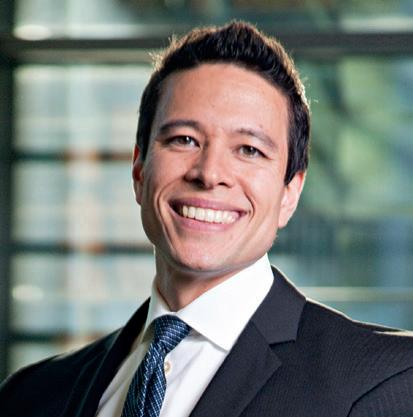
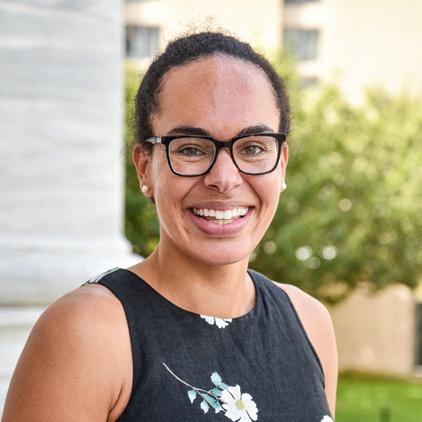
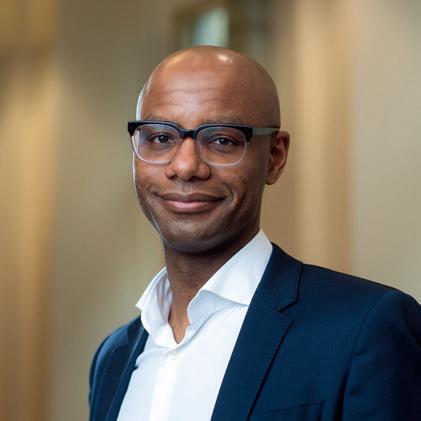
The Simons Foundation has awarded $568,000 to Sandeep Robert “Bob” Datta, MD ’04, PhD ’04, a professor of neurobiology in the Blavatnik Institute at HMS, to support his lab’s efforts to leverage the quantitative insight afforded by motion sequencing—a transformative behavioral analysis technology— to better understand behavioral phenotypes in rat models of autism spectrum disorder.
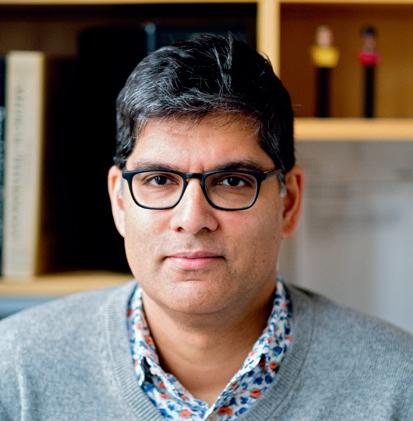
Allon Klein, PhD, an associate professor of systems biology in the Blavatnik Foundation at HMS, has received an Edward Mallinckrodt, Jr. Foundation Scholar Award—$100,000 per year for four years—for his efforts to develop and apply new technology for multiplexing singlecell genomic assay modalities with each other, and with functional assays. If these efforts are successful, this new technology may have an extremely broad impact throughout biology and medicine, with application to a wide range of disease mechanisms.

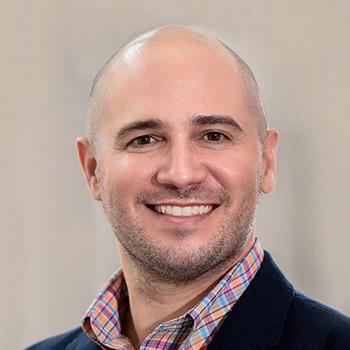
Ruaidhrí Jackson, PhD, an assistant professor of immunology in the Blavatnik Institute at HMS, is using a Senior Research Award of nearly $350,000 over three years from the Crohn’s and Colitis Foundation to better understand how enteric neurons regulate the preclinical mechanism of human inflammatory bowel disease (IBD) using animal models of disease. Uncovering the underlying mechanism of enteric nervous system crosstalk at the mucosa will enable the scientific and medical community to better understand the etiology and pathogenesis of IBD, while also enabling the targeted design of novel therapeutic strategies to counteract the disease.
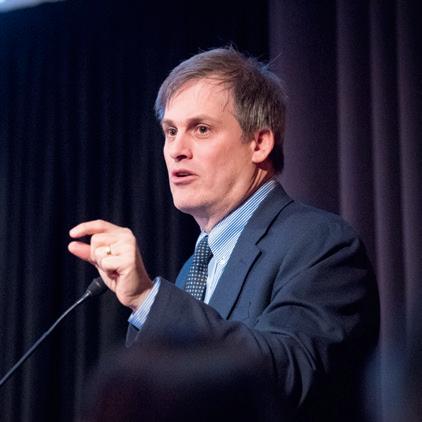
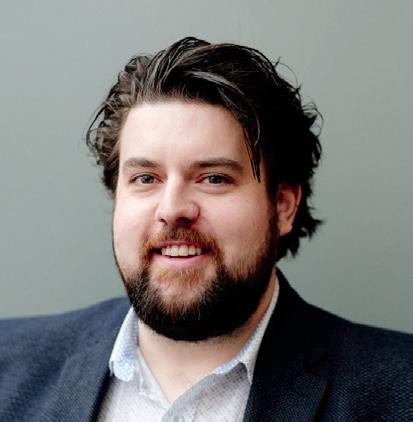
The Dana Foundation has awarded more than $250,000 to the HMS Center for Bioethics to support a pilot grant to explore the creation of a Dana Center for Neuroscience & Society (DCN) and to establish a Dana Foundation Career Network in Neuroscience & Society. The DCN and the Career Network will aim to expand and diversify the next generation of neuroscience and society students, practitioners, and scholars. The pilot grant for the DCN will be led by co-directors Gabriel Lázaro-Muñoz, JD, PhD (above, right), a member of the Center for Bioethics who is also an HMS assistant professor of psychiatry at Massachusetts General Hospital (MGH) and an assistant professor of global health and social medicine in the Blavatnik Institute at HMS; Francis Shen, JD ’06, PhD ’08 (above, left), a Center for Bioethics faculty member who is also a Harvard University Affiliated Professor at Harvard Law School and a member of the faculty of global health and social medicine at HMS; and Theresa Williamson, MD (right), co-chair of the Surgical Ethics Working Group at the Center for Bioethics and an HMS assistant professor of neurosurgery at MGH. Shen will also lead the Career Network.

The following grants totaling $250,000 or more were awarded to support members of the Harvard Medical School community in their work to alleviate suffering and improve health and well-being for all.
01
How important are facilities upgrades—for example, the newly announced atrium project at Building C, which will be named the Bertarelli Building—to the future of the Medical School?
The Building C atrium project, also known as West Commons, is an important project in the life of Harvard Medical School. It will transform the West Quad by providing a collaborative environment for the research community. This new atrium common space will directly connect over 290,000 gross square feet in three separate buildings—the Bertarelli Building, the Seeley G. Mudd building, and the Laboratory for Human Reproduction and Reproductive Biology (LHRRB) building. The goal of the project is to provide the necessary space to foster connection, collaboration, and community, while also providing program offices for the Department of Cell Biology, the Department of Biological Chemistry and Molecular Pharmacology, and the Blavatnik Harvard Life Lab Longwood. When we developed aspirations for this project several years ago, our consensus was that it would enable a higher level of partnership and engagement among different disciplines, catalyze discovery, and further develop the therapeutic pipeline. We anticipate starting construction in the spring of 2024 and completing the project in late 2025.
In the fall 2022 issue of Pulse, we incorrectly described the breast cancer risk for women who inherit a harmful variant in the BRCA1 gene or BRCA2 gene. According to the National Cancer Institute, 55%–72% of women who inherit a harmful BRCA1 variant and 45%–69% of women who inherit a harmful BRCA2 variant will develop breast cancer by 70–80 years of age. We apologize for the mistake.
02
Besides the Building C project, can you highlight some other building renovation projects that are underway or in the pipeline?
This is a very exciting time at HMS for moving forward with transformative projects to support the HMS community, as well as addressing critical renewal and infrastructure projects. Phase two of the Countway Library project is under construction and will be completed in the summer of 2023. It will transform the lower level of the library to provide additional study, collaborative, and classroom space. The Gordon Hall flex-space project will provide a vibrant and collaborative environment for administrative departments assigned to that space to work productively in a hybrid mode. This project will also address major facility renewal and infrastructure upgrades in Gordon Hall and is expected to be completed in the summer of 2024. Other major projects in the pipeline over the next several years include work in the Goldenson and Armenise buildings for much needed facility renewal and lab renovations, as well as exterior facade renovations.
03
What are some of HMS’s biggest space needs?
Within our current building portfolio at HMS, we have less than 1.5% of vacant space. This makes any growth or reconfiguration extremely challenging to manage. This lack of space also contributes to the high construction costs for renovations due to the lack of swing space to accommodate displaced occupants. Given our lack of space, it is critical that we ensure that our space is functioning as optimally as possible to support the intended programs. This becomes extremely challenging as programs grow and change over time. There are significant space needs within our graduate education programs to provide the necessary classroom sizes and configurations to support those programs. The same is true for the Office for External Education and specific programs that it would like to support on campus.
Dean of Harvard Medical School
Emily Cahill
Editor
Randy Fox
Writers
Victor DeRubeis
Randy Fox
Sarah Furie
Jake Miller
Brandy Newlon
Photographers
Evgenia Eliseeva
Gretchen Ertl
Contact
George
Q. Daley, AB ’82, MD ’91, PhDDean for Alumni Affairs and Development
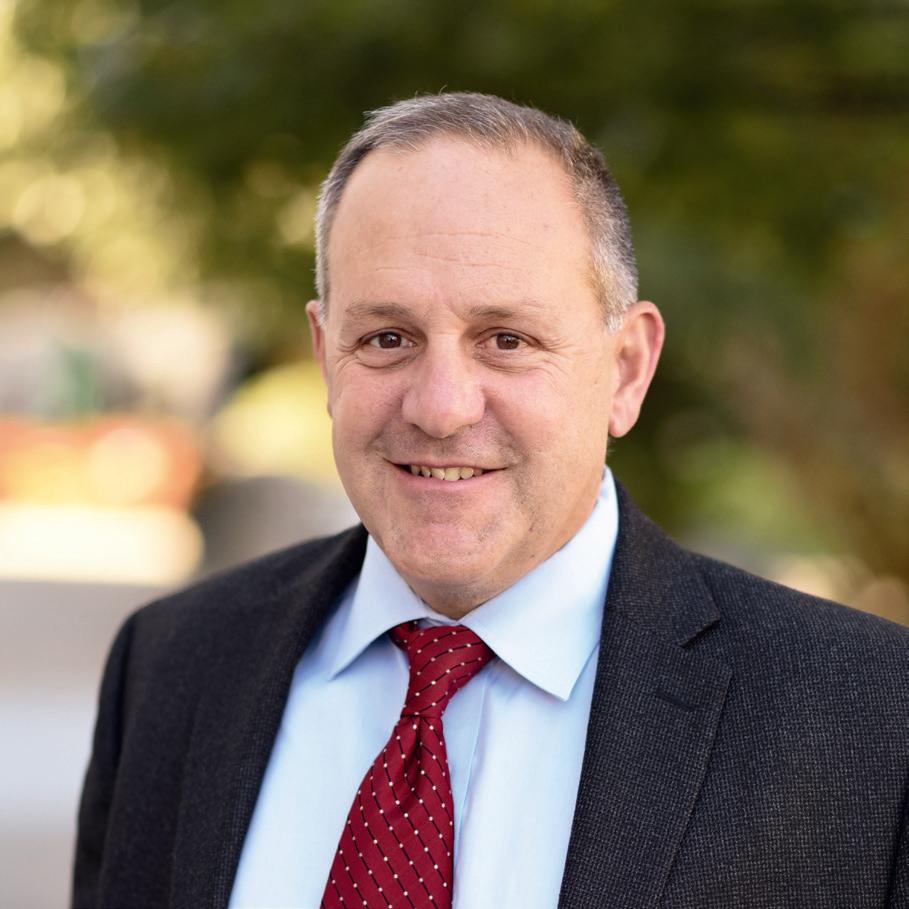
Lisa
BoudreauCreative Director
Eliza Butts
Designer Sametz Blackstone Associates
Getty Images
Steve Gilbert
Illume Creative Studio
Channing Johnson
Steve Lipofsky
Cindy Loo
©2023 The President
Fellows
We sat down with Harvard Medical School Chief Campus Planning and Facilities Officer
Stephen Maiorisi to ask him about building renovation projects at HMS, including the work to convert Building C into the Bertarelli Building.
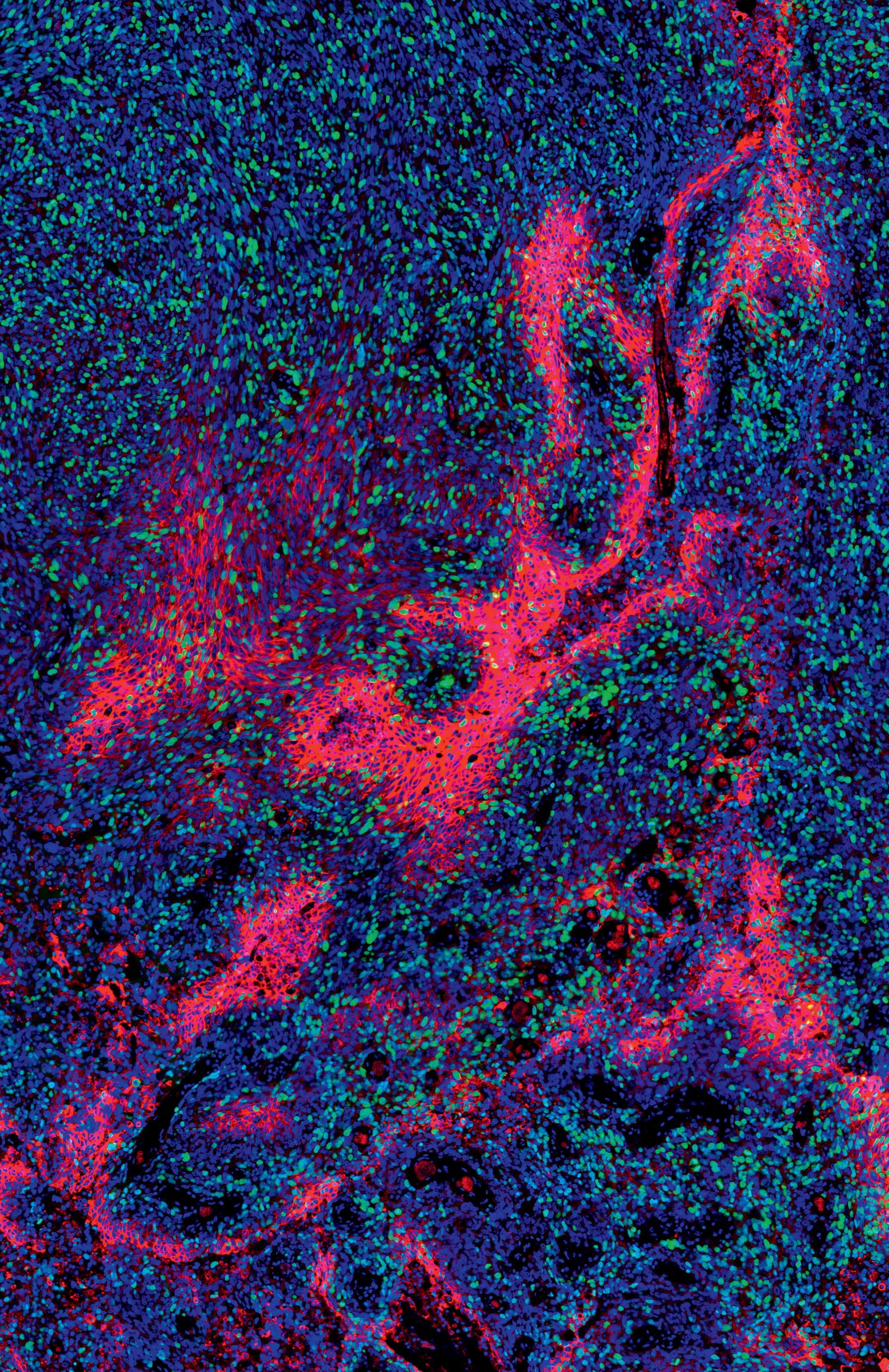
Jason Biundo asks a question to a presenter at the eighth annual research day for the Ellen R. and Melvin J. Gordon Center for the Cure and Treatment of Paralysis at Spaulding Rehabilitation Hospital and Harvard Medical School. HMS Dean George Q. Daley, AB ’82, MD ’91, PhD, and Ross D. Zafonte, DO, president of Spaulding Rehabilitation Network and chair of the HMS Department of Physical Medicine and Rehabilitation, delivered opening remarks at the April 14 event in Boston. The Gordon Center strives to create a more collaborative and comprehensive approach toward the treatment and potential cure of paralysis. Biundo, who suffered a traumatic spinal cord injury in 2019, is a research assistant studying paralysis at Boston Children’s Hospital.
